Films A-Z
48 in International Panorama
Susana de Sousa Dias / Portugal / 2009 / 93 min / Portuguese
Photos. Faces. Voices. Each tells the story of the 48-year dictatorship in Portugal. A haunting depiction of oppression and torture. Film Critics Prize, Dok Leipzig 2010.
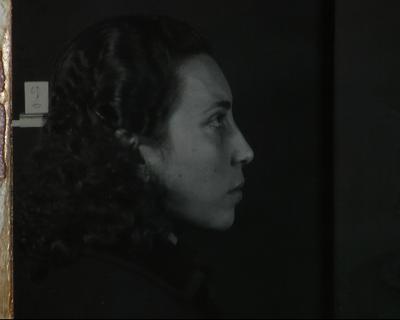
The photographs capture their subjects frontally and in profile. They are official pictures, part of the record of repression taken by the dreaded PIDE, the secret police. What can a portrait photograph reveal about a political system? What can a picture taken 35 years ago tell us about our own society? Based on photographs taken following the arrest of political prisoners during the Portuguese dictatorship (1926-1974), 48 aims to convey the mechanisms by which a dictatorial regime seeks to self-perpetuate. In place of a face lined with its terrifying memory marks, there are photographs, floating up out of the darkness, staring back relentlessly, pouring words out of their asymmetries, reflecting on their time spent in prison. By means of an innovative cinematographic approach Susana de Sousa succeeds in creating a film of universal impact. The film takes the viewers to the darkest realms of physical and psychological ordeals via words and still images. A poignant yet quiet outcry against oppression and inhuman treatment.
producer: Ansgar Schäfer
editor: Susana de Sousa Dias
camera: Octávio Espírito Santo
sound: Armanda Carvalho
production info:
Kintop
Campo Pequeno, 50-2º Esq.
1000-081 Lisboa, Portugal
tel.: + 351 21 795 72 68
info@kintop.net
www.kintop.net
filmography
Still Life (2005)
Susana de Sousa Dias / Portugal / 2009 / 93 min / Portuguese
Photos. Faces. Voices. Each tells the story of the 48-year dictatorship in Portugal. A haunting depiction of oppression and torture. Film Critics Prize, Dok Leipzig 2010.

producer: Ansgar Schäfer
editor: Susana de Sousa Dias
camera: Octávio Espírito Santo
sound: Armanda Carvalho
production info:
Kintop
Campo Pequeno, 50-2º Esq.
1000-081 Lisboa, Portugal
tel.: + 351 21 795 72 68
info@kintop.net
www.kintop.net
filmography
Still Life (2005)
Agnus Dei: Lamb of God in International Panorama
Alejandra Sánchez / France & Mexico / 2010 / 81 min / Spanish
Abused by a priest at the age of 11, Jesús, now 26, decides to bring criminal charges against his attacker, and confronts him in person. FIPRESCI Prize, Dok Leipzig 2010
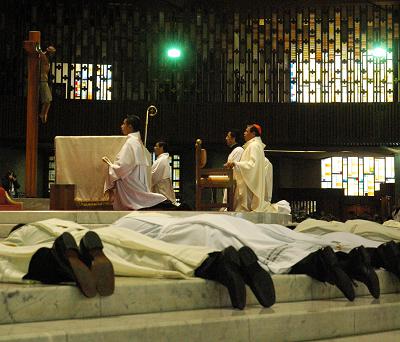
Agnus Dei is a candid documentary on the thorny subject of pedophilia in the Catholic Church. As an 11-year-old altar boy Jesús, now 26, was abused by a priest. Father Carlos, a priest and paternal figure respected by the community and seen as an unimpeachable authority, intimidated Jesús into long years of silence. Years later, however, Jesús decides not only to tell his story but also to bring criminal charges against his aggressor, and confront him in person. This is the story of his journey, a mandatory hiatus on the road to forgiveness, born of a deep-seated need to come to terms with the past. Jesús is torn between brotherly love and anger toward his sexual predator in this film full of nuances that gives a name and a face to a problem stigmatized by silence.
producer: Carole Solive
editor: Ana García
camera: Érika Licea, Pablo Ramirez Duron
sound: Sylvianne Bouget, Ana Garciá Ana Garciá
music: Tareke Ortiz
distribution info:
Maëlle Guenegues CAT&Docs
18, rue Quincampoix Paris
75004 France
tel: +33 1 4459 6353
maelle@catndocs.com
www.catndocs.com
selected filmography
Bajo Juárez, the City Devouring its Daughters (2006)
Alejandra Sánchez / France & Mexico / 2010 / 81 min / Spanish
Abused by a priest at the age of 11, Jesús, now 26, decides to bring criminal charges against his attacker, and confronts him in person. FIPRESCI Prize, Dok Leipzig 2010

producer: Carole Solive
editor: Ana García
camera: Érika Licea, Pablo Ramirez Duron
sound: Sylvianne Bouget, Ana Garciá Ana Garciá
music: Tareke Ortiz
distribution info:
Maëlle Guenegues CAT&Docs
18, rue Quincampoix Paris
75004 France
tel: +33 1 4459 6353
maelle@catndocs.com
www.catndocs.com
selected filmography
Bajo Juárez, the City Devouring its Daughters (2006)
Algeria, Images of a Fight in Evidence: Archival Footage in Documentary
Jérôme Laffont / Belgium / 2009 / 52 min / French
“The camera is a weapon,” proves René Vautier, who defied the French-imposed censorship during the Algerian war of Independence and joined the battle of competing images on the side of the independence fighters.
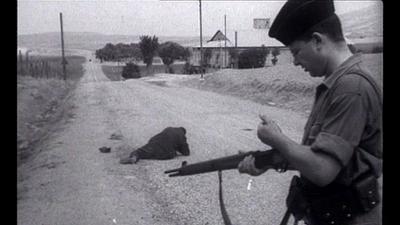 As with all later conflicts, the Algerian War of Independence in the early 1960’s became a high-stakes target in the battle of competing images. Behind the war itself was a media war which was almost as crucial in contesting the sympathy of the world for the opposing points of view. As a counter to the propaganda movies made in support of the French military campaign, a few directors such as René Vautier devoted themselves to documenting the struggle from behind the lines with the independence fighters. Much of this footage – at times moving and at times harrowing, often very beautiful – was banned in France. Much of it has been lost and some even destroyed. A compelling film which raises important questions about the power of filmmaking and the purposes it serves in documenting – or manipulating – reality.
As with all later conflicts, the Algerian War of Independence in the early 1960’s became a high-stakes target in the battle of competing images. Behind the war itself was a media war which was almost as crucial in contesting the sympathy of the world for the opposing points of view. As a counter to the propaganda movies made in support of the French military campaign, a few directors such as René Vautier devoted themselves to documenting the struggle from behind the lines with the independence fighters. Much of this footage – at times moving and at times harrowing, often very beautiful – was banned in France. Much of it has been lost and some even destroyed. A compelling film which raises important questions about the power of filmmaking and the purposes it serves in documenting – or manipulating – reality.
producer: Michel Khleifi
editor: Joachim Thôme
camera:Naël Khleifi
sound: Nicolas Jolym, Matthieu Roche
production info:
Sourat Films Co. & Centre de l'Audiovisuel à Bruxelles (CBA)
28 avenue des Villas, B-1060 Bruxelles, Belgium
tel.: 32 2 375 04 75 / 32 4 73 99 53 18
fax.: 32 2 375 04 75
Centre de l'Audiovisuel à Bruxelles (CBA)
Maison de la Francité, 19f, avenue des Artsm Bruxelles, 1000, Belgique
tel.: +32(0)2/227.22.30 / +32(0)2/227.22.39
cba@skynet.be
http://www.cbadoc.be
filmography
Résister n’est pas un crime (2007)
Jérôme Laffont / Belgium / 2009 / 52 min / French
“The camera is a weapon,” proves René Vautier, who defied the French-imposed censorship during the Algerian war of Independence and joined the battle of competing images on the side of the independence fighters.

producer: Michel Khleifi
editor: Joachim Thôme
camera:Naël Khleifi
sound: Nicolas Jolym, Matthieu Roche
production info:
Sourat Films Co. & Centre de l'Audiovisuel à Bruxelles (CBA)
28 avenue des Villas, B-1060 Bruxelles, Belgium
tel.: 32 2 375 04 75 / 32 4 73 99 53 18
fax.: 32 2 375 04 75
Centre de l'Audiovisuel à Bruxelles (CBA)
Maison de la Francité, 19f, avenue des Artsm Bruxelles, 1000, Belgique
tel.: +32(0)2/227.22.30 / +32(0)2/227.22.39
cba@skynet.be
http://www.cbadoc.be
filmography
Résister n’est pas un crime (2007)
Autumn Gold in International Panorama
Jan Tenhaven / Austria & Germany / 2010 / 94 min / Czech & English & German & Italian & Swedish
Five senior athletes prove that being 80, 95, or even 100 years old is just a minor inconvenience when becoming a world champion is at stake. A stunning film about human dignity and the power to live. Audience award, One World FF, Prague, 2011
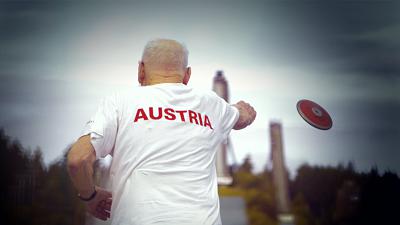 This film offers a sensitive, formally elegant, and cheerful portrait of five athletes competing at the 18th international senior citizen World Masters Championships in the Finnish city of Lahti. The makers of this documentary convincingly show us how well one can preserve a healthy spirit, a vigorous mind and admirable levels of fitness in an aging body. The protagonists include the Viennese centenarian Alfred Proksche, who paints female nudes in his spare time, the 94-year-old Italian discus thrower Gabre Gabric-Calvesi, 93-year-old Herbert Liedtke, a ferocious sprinter from Stockholm, and Jiří Soukup, an 82-year-old high-jumper from Hradec Králové. For them, preparing for the championships, like the individual competitions themselves, is primarily a race against time. Despite this, they hope that their performances next year will be a little bit better.
This film offers a sensitive, formally elegant, and cheerful portrait of five athletes competing at the 18th international senior citizen World Masters Championships in the Finnish city of Lahti. The makers of this documentary convincingly show us how well one can preserve a healthy spirit, a vigorous mind and admirable levels of fitness in an aging body. The protagonists include the Viennese centenarian Alfred Proksche, who paints female nudes in his spare time, the 94-year-old Italian discus thrower Gabre Gabric-Calvesi, 93-year-old Herbert Liedtke, a ferocious sprinter from Stockholm, and Jiří Soukup, an 82-year-old high-jumper from Hradec Králové. For them, preparing for the championships, like the individual competitions themselves, is primarily a race against time. Despite this, they hope that their performances next year will be a little bit better.
producer: Christian Beetz
editor: Jürgen Winkelblech
camera: Marcus Winterbauer, Martin Langner
sound: Patrick Veigel, Oliver Grafe, Oliver Prasnikar
music: Andy Baum
production info:
Gebrueder Beetz Filmproduktion Köln GmbH & Co. KG
Heinrich-Roller-Strasse 15 10405 Berlin Germany
tel.: + 49 30 695 669 10
info@gebrueder-beetz.de
www.beetz-brothers.eu
www.autumngold-movie.com
selected filmography
Why We Buy (2009) / The War In Me – The Sleeping Trauma (2008) / Tracing the Ancestors – My Ancestors the Deathsmen (2007) / The Poorest Pay the Bill – Debt Release for the Third World (1999)
trailer
http://www.herbstgold-derfilm.com/trailer-de-en/trailer-de-en
Jan Tenhaven / Austria & Germany / 2010 / 94 min / Czech & English & German & Italian & Swedish
Five senior athletes prove that being 80, 95, or even 100 years old is just a minor inconvenience when becoming a world champion is at stake. A stunning film about human dignity and the power to live. Audience award, One World FF, Prague, 2011

producer: Christian Beetz
editor: Jürgen Winkelblech
camera: Marcus Winterbauer, Martin Langner
sound: Patrick Veigel, Oliver Grafe, Oliver Prasnikar
music: Andy Baum
production info:
Gebrueder Beetz Filmproduktion Köln GmbH & Co. KG
Heinrich-Roller-Strasse 15 10405 Berlin Germany
tel.: + 49 30 695 669 10
info@gebrueder-beetz.de
www.beetz-brothers.eu
www.autumngold-movie.com
selected filmography
Why We Buy (2009) / The War In Me – The Sleeping Trauma (2008) / Tracing the Ancestors – My Ancestors the Deathsmen (2007) / The Poorest Pay the Bill – Debt Release for the Third World (1999)
trailer
http://www.herbstgold-derfilm.com/trailer-de-en/trailer-de-en
Caught Between Two Worlds in Hungarian Panorama
Viktor Oszkár Nagy / Hungary / 2010 / 67 min / Arabic & English & French & Georgian & Russian & Somali
Four cultures, four stories, four fights, and a chance for a fresh start in a foreign country - everyday life in a Hungarian refugee camp.
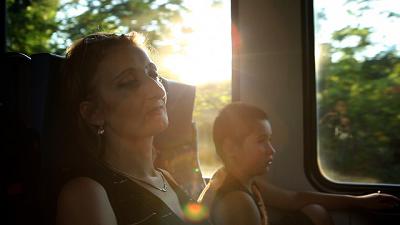 A close-up on everyday life in a Hungarian refugee camp. In the past year, the number of asylums seekers in Hungary has risen above 4000. Following a rigorous application and screening procedure, only ten percent of the applicants are granted refugee status. After staying in the camps in Békéscsaba and Debrecen, they are moved to the Refugee Reception Center in Bicske. The “chosen ones” can live here for one year, during which social workers, language teachers and various NGOs try to prepare them for a new life in Hungary. Caught Between Two Worlds is a dramatic journey into the depths of refugee existence and what it means to start from scratch in a country that is prepared to host you, but remains foreign.
A close-up on everyday life in a Hungarian refugee camp. In the past year, the number of asylums seekers in Hungary has risen above 4000. Following a rigorous application and screening procedure, only ten percent of the applicants are granted refugee status. After staying in the camps in Békéscsaba and Debrecen, they are moved to the Refugee Reception Center in Bicske. The “chosen ones” can live here for one year, during which social workers, language teachers and various NGOs try to prepare them for a new life in Hungary. Caught Between Two Worlds is a dramatic journey into the depths of refugee existence and what it means to start from scratch in a country that is prepared to host you, but remains foreign.
producer: Sára László, Marcell Gergő
editor: Péter Sass
camera: Rudolf Péter Kiss
sound: Péter Benjamin Lukács
music: Hildur Gudnadottir, Salif Keita
production info:
Campfilm Production
Károly krt. 3/c
1075 Budapest, Hungary
sara@campfilm.eu
tel.: + 36 20 922 2655
selected filmography
3 Esküvő (2009) / Hajónapló (2009) / Apaföld (2008) / A vizsga (2006) / A Tárca (2005)
Viktor Oszkár Nagy / Hungary / 2010 / 67 min / Arabic & English & French & Georgian & Russian & Somali
Four cultures, four stories, four fights, and a chance for a fresh start in a foreign country - everyday life in a Hungarian refugee camp.

producer: Sára László, Marcell Gergő
editor: Péter Sass
camera: Rudolf Péter Kiss
sound: Péter Benjamin Lukács
music: Hildur Gudnadottir, Salif Keita
production info:
Campfilm Production
Károly krt. 3/c
1075 Budapest, Hungary
sara@campfilm.eu
tel.: + 36 20 922 2655
selected filmography
3 Esküvő (2009) / Hajónapló (2009) / Apaföld (2008) / A vizsga (2006) / A Tárca (2005)
Calling the Ghosts. A Story about Rape, War and Women in Windows to the Past: Balkan War Reflections
Mandy Jacobson & Karmen Jelinčić / USA / 1996 / 63 min / Bosnian & Croatian
Two women from Bosnia-Herzegovina are caught in a war where rape was as much a weapon as bullets. Having survived the notorious Omarska concentration camp, they lobby to have rape included in the international lexicon of war crimes.
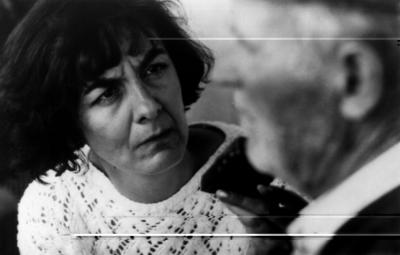 The first-person account of two women caught in a war where rape was as much an everyday weapon as bullets or bombs. Jadranka Cigelj and Nusreta Sivać, childhood friends and lawyers, enjoyed the lives of "ordinary modern women" in Bosnia-Herzegovina until one day former neighbors became tormentors. Taken to the notorious Serb concentration camp of Omarska, the two women, like other Muslim and Croat women interned there, were systematically tortured and humiliated by their Serb captors. Once released, the pair turned a personal struggle for survival into a larger fight for justice, assisting other similarly brutalized women and successfully lobbying to have rape included in the international lexicon of war crimes by the UN Tribunal at the Hague. Chronicling the two women's experience and their remarkable transformation, Calling the Ghosts is an indispensable resource for deepening understanding of human rights abuses and combating violence against women in the global arena.
The first-person account of two women caught in a war where rape was as much an everyday weapon as bullets or bombs. Jadranka Cigelj and Nusreta Sivać, childhood friends and lawyers, enjoyed the lives of "ordinary modern women" in Bosnia-Herzegovina until one day former neighbors became tormentors. Taken to the notorious Serb concentration camp of Omarska, the two women, like other Muslim and Croat women interned there, were systematically tortured and humiliated by their Serb captors. Once released, the pair turned a personal struggle for survival into a larger fight for justice, assisting other similarly brutalized women and successfully lobbying to have rape included in the international lexicon of war crimes by the UN Tribunal at the Hague. Chronicling the two women's experience and their remarkable transformation, Calling the Ghosts is an indispensable resource for deepening understanding of human rights abuses and combating violence against women in the global arena.
producer: Mandy Jacobson
editor: Suzanne Rostock
camera: Mario Delić
sound: Kristen Thomas, Mario Vargović
music: Tony Adzinikolov
distributor:
Women Make Movies
462 Broadway, Suite 500WS
New York, NY 10013
tel.: + 1 212-925-0606
info@wmm.com
selected filmography
Mandy Jacobson: Wide Angle - Road to Riches (2003) / Locked Up (2001) / Calling the Ghosts (1996)
Mandy Jacobson & Karmen Jelinčić / USA / 1996 / 63 min / Bosnian & Croatian
Two women from Bosnia-Herzegovina are caught in a war where rape was as much a weapon as bullets. Having survived the notorious Omarska concentration camp, they lobby to have rape included in the international lexicon of war crimes.

producer: Mandy Jacobson
editor: Suzanne Rostock
camera: Mario Delić
sound: Kristen Thomas, Mario Vargović
music: Tony Adzinikolov
distributor:
Women Make Movies
462 Broadway, Suite 500WS
New York, NY 10013
tel.: + 1 212-925-0606
info@wmm.com
selected filmography
Mandy Jacobson: Wide Angle - Road to Riches (2003) / Locked Up (2001) / Calling the Ghosts (1996)
Closing in on Tanja in International Panorama
Leo de Boer / The Netherlands / 2010 / 90 min / Dutch & English & Spanish
In 2002, Tanja, a young Dutch woman, joined the Colombian guerilla movement FARC. Years later, her diaries are found, describing her loneliness and disillusionment with the struggle. Is there a way out for her?
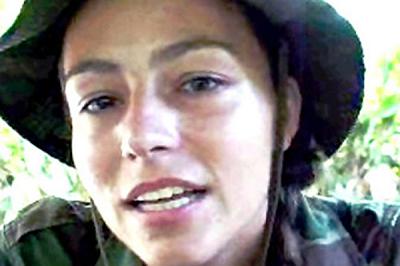
During a raid on FARC rebel camps in 2007, a diary written by Tanja Nijmeijer is found. Enthralled by the vision of a leftist rebel movement fighting for the freedom of an oppressed people, this small-town student-teacher decided to join the guerilleros in the Colombian jungle. After the publication of her diaries, Tanja Nijmeijer hit the headlines worldwide. In her diaries she complains of patriarchal relations in her unit and her lost sense of purpose in continuing the fight. There were no more reports about Nijmeijer after the diaries came out. Filmmaker Leo de Boer makes contact with Dutch FARC-expert Liduine Zumpolle, who disclosed the diaries. For decades she has been working in a Columbian guerrilla reintegration program. De Boer visits her and decides to go and search for Tanja in Colombia. Tanja’s mother also arrives in Colombia and travels with the film crew to the front lines in an attempt to contact her daughter and convince her to return. Is Tanja still alive? What has happened to her since her diaries were discovered? Where is she now?
producer: Pieter van Huystee
editor: Patrick Janssens
camera: Leo de Boer
sound: Leo de Boer
production info:
Pieter van Huystee Film
Noordermarkt 37-39
1015 NA Amsterdam
tel.: + 31 (0)20 421 0606
info@pvhfilm.nl
www.pvhfilm.nl
selected filmography
The Vos Case (2008) / The Red Stuff (2000) / Sporen van beschaving - De Trein naar Grozny (2000) / Dreaming in October (1999) / The Russian Folk (1998) / Engelen des doods (1998) / The Road to Bresson (1984)
Leo de Boer / The Netherlands / 2010 / 90 min / Dutch & English & Spanish
In 2002, Tanja, a young Dutch woman, joined the Colombian guerilla movement FARC. Years later, her diaries are found, describing her loneliness and disillusionment with the struggle. Is there a way out for her?

producer: Pieter van Huystee
editor: Patrick Janssens
camera: Leo de Boer
sound: Leo de Boer
production info:
Pieter van Huystee Film
Noordermarkt 37-39
1015 NA Amsterdam
tel.: + 31 (0)20 421 0606
info@pvhfilm.nl
www.pvhfilm.nl
selected filmography
The Vos Case (2008) / The Red Stuff (2000) / Sporen van beschaving - De Trein naar Grozny (2000) / Dreaming in October (1999) / The Russian Folk (1998) / Engelen des doods (1998) / The Road to Bresson (1984)
The Collaborator and His Family in International Panorama
Adi Barash & Ruthie Shatz / France & Israel & USA / 2011 / 85 min / Arabic & Hebrew
A Palestinian informer finds himself and his family trapped when his twenty years of services is not enough to earn a place in Israel.
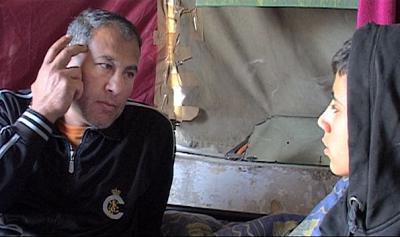
The Collaborator and His Family is a chronicle of family, assimilation and espionage that follows the El-Akels, a Palestinian family whose father, Ibrahim, has been a collaborator for ideological reasons with the Israeli security services for 20 years. Branded as traitors by Palestinians, the entire family fled to Israel seeking the asylum that had been promised by Ibrahim's Israeli “operator.” Over a two-and-a-half-year period, as each day passes with no progress towards citizenship, tension builds within the family. Alienated and humiliated, Ibrahim's wife Yusra, three teenage sons and two daughters bear the consequences of Ibrahim's decision while struggling to assimilate into Israeli society. Co-directors Adi Barash and Ruthie Shatz gain intimate access to the hardest moments the family face, observing as each connecting thread between family members unravels. This unflinching documentary highlights the experience of the many who risk their lives to collaborate with the enemy.
producer: Ross Kauffman, Adi Barash, Ruthie Shatz
editor: Janus Billeskov Jansen
camera: Adi Barash
sound: Zamir Shatz
music: Uri Frost
production info:
Yulari Films
http://www.yularifilms.com/
selected filmography
Garden (2003) / Diamonds and Rust (2001)
Adi Barash & Ruthie Shatz / France & Israel & USA / 2011 / 85 min / Arabic & Hebrew
A Palestinian informer finds himself and his family trapped when his twenty years of services is not enough to earn a place in Israel.

producer: Ross Kauffman, Adi Barash, Ruthie Shatz
editor: Janus Billeskov Jansen
camera: Adi Barash
sound: Zamir Shatz
music: Uri Frost
production info:
Yulari Films
http://www.yularifilms.com/
selected filmography
Garden (2003) / Diamonds and Rust (2001)
Corvin Variations in Hungarian Panorama
Klára Trencsényi / Hungary / 2011 / 39 min / Hungarian
What is left of the atmosphere of the famous Corvin promenade in Budapest after the city rehabilitation project? Locals talk about the old and new face of the area.
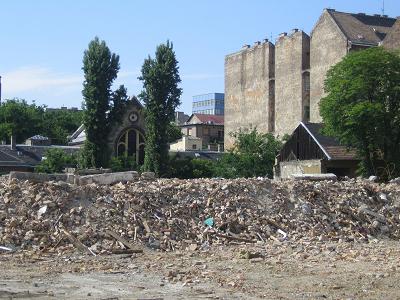 The Corvin Project initiated in 2003 was the largest and most awarded Central European city development project. It envisioned the full transformation of cca. 22 acres territory in the VIIIth district of Budapest, which implied the demolition of all buildings in the given area. Both the local government and the investor wanted to get rid of the “slums” by relocating more than one thousand families who could not afford buying property in the old-new area. The protagonists of Corvin Variations are all local residents who have been relocated in the course of the project. Three relocated families recall with nostalgia the old community and the promenade that now lives only in their memories.
The Corvin Project initiated in 2003 was the largest and most awarded Central European city development project. It envisioned the full transformation of cca. 22 acres territory in the VIIIth district of Budapest, which implied the demolition of all buildings in the given area. Both the local government and the investor wanted to get rid of the “slums” by relocating more than one thousand families who could not afford buying property in the old-new area. The protagonists of Corvin Variations are all local residents who have been relocated in the course of the project. Three relocated families recall with nostalgia the old community and the promenade that now lives only in their memories.
producer: András Muhi, Inforg Stúdió
editor: Bence Bartos, Ági Mógor
camera: Klára Trencsényi
sound: Rudolf Várhegyi, 4Cut
music: Hanna Honthy, Miklós Preiszner
production info:
Inforg Stúdió
1092. Bp. Kinizsi u. 11.
tel.: +36 203 194 448
klaritat@yahoo.com
filmography
Bird’s Way (2009) / 3Weddings – Elena & Leo (2009) / A Chance (2007)
Klára Trencsényi / Hungary / 2011 / 39 min / Hungarian
What is left of the atmosphere of the famous Corvin promenade in Budapest after the city rehabilitation project? Locals talk about the old and new face of the area.

producer: András Muhi, Inforg Stúdió
editor: Bence Bartos, Ági Mógor
camera: Klára Trencsényi
sound: Rudolf Várhegyi, 4Cut
music: Hanna Honthy, Miklós Preiszner
production info:
Inforg Stúdió
1092. Bp. Kinizsi u. 11.
tel.: +36 203 194 448
klaritat@yahoo.com
filmography
Bird’s Way (2009) / 3Weddings – Elena & Leo (2009) / A Chance (2007)
Eid in International Panorama
Saaheb Collective / Israel / 2011 / 8 min / English
The Israeli-Palestinian conflict seen through scrap-art. An inspiring look at an original artistic approach.
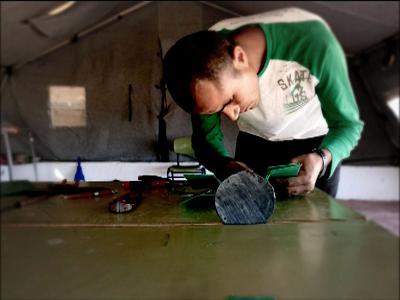
Eid is a Palestinian Bedouin living in a village in the southern Hebron hills. Ever since he can remember, Eid has picked up scrap materials and turned them into art. By following Eid's creative process, this film celebrates the optimism and integrity which enables him to transform occupation into an artistic expression of individuality and hope.
producer: Saaheb Collective
editor: Saaheb Collective
camera: Saaheb Collective
sound: Saaheb Collective
production info:
Saaheb Collective
saahebcollective@gmail.com
Saaheb Collective / Israel / 2011 / 8 min / English
The Israeli-Palestinian conflict seen through scrap-art. An inspiring look at an original artistic approach.

producer: Saaheb Collective
editor: Saaheb Collective
camera: Saaheb Collective
sound: Saaheb Collective
production info:
Saaheb Collective
saahebcollective@gmail.com
Europolis, The Town of the Delta in International Panorama
Kostadin Bonev / Austria & Bulgaria / 2009 / 81 min / Romanian
The rise and fall of the town of Sulina, once the third largest port in Europe. An unsettling story of glory and decay set in the Danube Delta. Audience Award / London International Documentary Film Festival, 2011
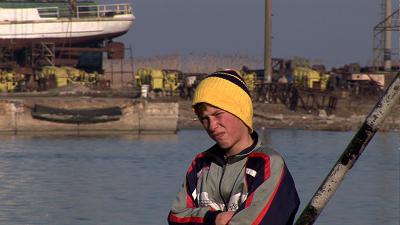 There is no road to Sulina. You can only get to this bizarre place by river or by sea. Nevertheless, Sulina is not an island. Squeezed into the land between the many branches of the river, Sulina is the town of the Danube Delta. In the past, almost 100 years ago, the town was the third largest harbour in Europe. Today, Sulina is slowly dying, dreaming about a united Europe. What has happened to this place, isolated from the world? In 1933 Eugeniu Botez, a commandant of the harbour of Sulina, wrote a novel called Europolis under the name of Jean Bart. A year later he died. In this strange novel Jean Bart prophesies that one day nothing will be left of the town, once full of life. With the death of Europolis Europe will be slowly dying in agony. A few years later his prophecy started to come true.
There is no road to Sulina. You can only get to this bizarre place by river or by sea. Nevertheless, Sulina is not an island. Squeezed into the land between the many branches of the river, Sulina is the town of the Danube Delta. In the past, almost 100 years ago, the town was the third largest harbour in Europe. Today, Sulina is slowly dying, dreaming about a united Europe. What has happened to this place, isolated from the world? In 1933 Eugeniu Botez, a commandant of the harbour of Sulina, wrote a novel called Europolis under the name of Jean Bart. A year later he died. In this strange novel Jean Bart prophesies that one day nothing will be left of the town, once full of life. With the death of Europolis Europe will be slowly dying in agony. A few years later his prophecy started to come true.
producer: Penko Roussev, Alexander Binder
editor: Toma Waszarow
camera: Konstantin Zankov, Dimiter Mitov
sound: Eric Spitzer-Marlyn
music: Nikolai Ivanov
production info:
Kostadin Bonev
Compl. Nadejda 152 A, app.35
1220 Sofia, Bulgaria
tel.: + 359 888 465 735
bonevkost@abv.bg
www.trivium-films.com
selected filmography
War Correspondent (2008) / The Ships Are Full (2005) / Warming Up Yesterday’s Lunch (2002) / 1934 (1999) / The Patience of the Stone (1998) / Under a Cloud (1997) / Letters to the Nether World (1994) / Dream Hunters – A Documentary about Balkan Naïve Artists (1991)
trailer
http://www.trivium-films.com/trailers_kbonev.php?ID=439&language=en
http://www.trivium-films.com/trailers_kbonev.php?ID=440&language=en
Kostadin Bonev / Austria & Bulgaria / 2009 / 81 min / Romanian
The rise and fall of the town of Sulina, once the third largest port in Europe. An unsettling story of glory and decay set in the Danube Delta. Audience Award / London International Documentary Film Festival, 2011

producer: Penko Roussev, Alexander Binder
editor: Toma Waszarow
camera: Konstantin Zankov, Dimiter Mitov
sound: Eric Spitzer-Marlyn
music: Nikolai Ivanov
production info:
Kostadin Bonev
Compl. Nadejda 152 A, app.35
1220 Sofia, Bulgaria
tel.: + 359 888 465 735
bonevkost@abv.bg
www.trivium-films.com
selected filmography
War Correspondent (2008) / The Ships Are Full (2005) / Warming Up Yesterday’s Lunch (2002) / 1934 (1999) / The Patience of the Stone (1998) / Under a Cloud (1997) / Letters to the Nether World (1994) / Dream Hunters – A Documentary about Balkan Naïve Artists (1991)
trailer
http://www.trivium-films.com/trailers_kbonev.php?ID=439&language=en
http://www.trivium-films.com/trailers_kbonev.php?ID=440&language=en
Good Husband Dear Son in Windows to the Past: Balkan War Reflections
Heddy Honigmann / The Netherlands / 2001 / 50 min / Bosnian
The widows of Ahatovici remember their husbands and sons who were killed in the Yugoslav civil war in 1992. The beauty of memory and love through a dense layer of grief.
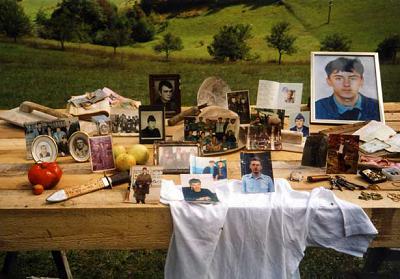 Life proceeds at a gentle pace in Ahatovici, a picturesque village in the green hills outside Sarajevo. But Ahatovici was far from quiet in 1992 when, during the war in Yugoslavia, the village fell into Serbian hands. Almost all the men were taken prisoner and brutally murdered and the village was burnt to the ground. Only the women and children were spared. The film tells the story behind this forgotten genocide. The murdered men are commemorated in the stories of their wives, mothers and daughters, and through the few remaining photographs and personal belongings. A memory is attached to each object, but that someone was a good husband does not appear from a photograph, but from the way his wife, talking about him, caresses the picture and presses it against her chest. Through the enveloping grief, the film looks for the beauty of remembering and of love.
Life proceeds at a gentle pace in Ahatovici, a picturesque village in the green hills outside Sarajevo. But Ahatovici was far from quiet in 1992 when, during the war in Yugoslavia, the village fell into Serbian hands. Almost all the men were taken prisoner and brutally murdered and the village was burnt to the ground. Only the women and children were spared. The film tells the story behind this forgotten genocide. The murdered men are commemorated in the stories of their wives, mothers and daughters, and through the few remaining photographs and personal belongings. A memory is attached to each object, but that someone was a good husband does not appear from a photograph, but from the way his wife, talking about him, caresses the picture and presses it against her chest. Through the enveloping grief, the film looks for the beauty of remembering and of love.
producer: John Appel
editor: Patrick Minks
camera: John Appel
sound: Piotr van Dijk
music: Hesperion XXI
production info:
Appel & Honigmann / VPRO Television
Interkerkelijke Omroep Nederland (IKON)
Bergweg 16
1217 SE Hilversum
tel.: + 35 672 7272
ikon@ikon.nl
www.ikonrtv.nl
selected filmography
Oblivion (2008) / Emoticons (2007) / Forever (2006) / Framed Marriage (2005) / Give Me Your Hand (2004) / Food for Love (2004) / Crazy (2000) / Hanna lacht (1999) / De juiste maat (1998) / 2 Minutes Silence, Please (1998) / The Underground Orchestra (1997) / O Amor Natural (1996) / Goodbye (1995) / Metal and Melancholy (1994) / Ghatak (1990) / Your Opinion, Please (1989) / Mindshadows (1988) / The Front Door (1985)
Heddy Honigmann / The Netherlands / 2001 / 50 min / Bosnian
The widows of Ahatovici remember their husbands and sons who were killed in the Yugoslav civil war in 1992. The beauty of memory and love through a dense layer of grief.

producer: John Appel
editor: Patrick Minks
camera: John Appel
sound: Piotr van Dijk
music: Hesperion XXI
production info:
Appel & Honigmann / VPRO Television
Interkerkelijke Omroep Nederland (IKON)
Bergweg 16
1217 SE Hilversum
tel.: + 35 672 7272
ikon@ikon.nl
www.ikonrtv.nl
selected filmography
Oblivion (2008) / Emoticons (2007) / Forever (2006) / Framed Marriage (2005) / Give Me Your Hand (2004) / Food for Love (2004) / Crazy (2000) / Hanna lacht (1999) / De juiste maat (1998) / 2 Minutes Silence, Please (1998) / The Underground Orchestra (1997) / O Amor Natural (1996) / Goodbye (1995) / Metal and Melancholy (1994) / Ghatak (1990) / Your Opinion, Please (1989) / Mindshadows (1988) / The Front Door (1985)
Granito: How to Nail a Dictator in Evidence: Archival Footage in Documentary
Pamela Yates / USA / 2011 / 103 min / English
What is the role of a documentary filmmaker in the events she chronicles? A 1982 documentary film When the Mountains Tremble becomes forensic evidence to help prove a genocide case against a military dictator.
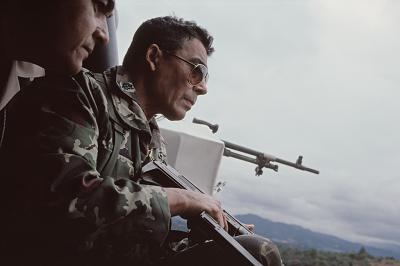
Granito is a story of destinies joined by Guatemala’s past, and how a documentary film, intertwined with a nation’s turbulent history, emerges as an active player in the present. In 1982, fledgling filmmaker Pamela Yates went to Guatemala to make a movie about the civil war devastating that country. The resulting documentary When the Mountains Tremble centered on guerrillas — including student protestors and indigenous Mayan people — fighting the country’s repressive military government at the time when the outcome of the conflict was uncertain. While filming, Yates was allowed to shoot the only known footage of the army as it carried out the genocide. More than 20 years later, after a change in the government of Guatemala, the country began to investigate the slaughter of the Mayan people, and a war crimes tribunal in Spain even set out to prepare a case to indict the former leaders of the country. Yates realized that excerpts and outtakes from her earlier film might aid the prosecution, and this case forced her to look back and question the role she had played as an observer and filmmaker.
producer: Paco de Onís
editor: Peter Kinoy
camera: Melle van Essen
sound: Richard Fleming, Alvaro Silva Wuth
music: Roger C. Miller
production info:
Skylight Pictures
33 Flatbush Ave, 4th Floor
Brooklyn, NY 11217
tel.: +1 718 797 3125
www.skylightpictures.com
selected filmography
The Reckoning: The Battle for the International Criminal Court (2009) / State of Fear (2005) / Poverty Outlaw (1997) / When the Mountains Tremble (1983)
Pamela Yates / USA / 2011 / 103 min / English
What is the role of a documentary filmmaker in the events she chronicles? A 1982 documentary film When the Mountains Tremble becomes forensic evidence to help prove a genocide case against a military dictator.

producer: Paco de Onís
editor: Peter Kinoy
camera: Melle van Essen
sound: Richard Fleming, Alvaro Silva Wuth
music: Roger C. Miller
production info:
Skylight Pictures
33 Flatbush Ave, 4th Floor
Brooklyn, NY 11217
tel.: +1 718 797 3125
www.skylightpictures.com
selected filmography
The Reckoning: The Battle for the International Criminal Court (2009) / State of Fear (2005) / Poverty Outlaw (1997) / When the Mountains Tremble (1983)
homo@lv in International Panorama
Kaspars Goba / Latvia / 2010 / 70 min / English & Latvian & Russian
To Pride or not to Pride? A look at the years of battle between ‘Pride’ and ‘NoPride’ supporters in Riga, and the way political manipulation has shaped the debate.
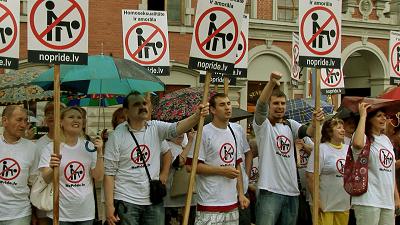
In the summer of 2005, the first festive lesbian, gay, bisexual and transgender people’s parade took place in Riga. Following the example of similar LGBT parades in Western Europe, they decided to call it “Pride.” Yet the good intentions spiraled into a chain of conflicts and controversies. Powerful emotions dramatically split Latvian society; the people involved were showered with human excrement and holy water, families were torn apart, jobs lost, and a priest expelled from the church for openly admitting his homosexuality. Jesus, the devil, patriotism, and human rights were invoked to support different views on the issue, and the press had a field day reporting on the ongoing scandal. Kaspars Goba followed the events for five years, starting from the first Pride Parade in 2005 to the decision not to hold Pride in Riga in 2010. The extensive footage collected over this period offers unprecedented insights into the opinions and life stories of the individuals on both the ‘Pride’ and the ‘NoPride’ fronts.
producer: Ieva Ūbele
editor: Gatis Belogrudovs, Visvaldis Zarakovskis
camera: Kaspars Goba, Marģeris Eglītis, Inese Apse
sound: Oskars Doma, Jānis Zaneribs
music: www.extrememusic.se, Edgars Ozoliņš
production info:
Elm Media
Ganību dambis 15
Rīga, LV 1045, Latvija
tel: +371 283 66800
elmmedia@elmmedia.lv
http://www.homo.lv/
selected filmography
City of Sweets (2010) / Exploring Nature: Five Stories (2009) / Engure. Lake given by the Sea (2005) / Seda. People of the Marsh (2004) / The Green City (2003)
Kaspars Goba / Latvia / 2010 / 70 min / English & Latvian & Russian
To Pride or not to Pride? A look at the years of battle between ‘Pride’ and ‘NoPride’ supporters in Riga, and the way political manipulation has shaped the debate.

producer: Ieva Ūbele
editor: Gatis Belogrudovs, Visvaldis Zarakovskis
camera: Kaspars Goba, Marģeris Eglītis, Inese Apse
sound: Oskars Doma, Jānis Zaneribs
music: www.extrememusic.se, Edgars Ozoliņš
production info:
Elm Media
Ganību dambis 15
Rīga, LV 1045, Latvija
tel: +371 283 66800
elmmedia@elmmedia.lv
http://www.homo.lv/
selected filmography
City of Sweets (2010) / Exploring Nature: Five Stories (2009) / Engure. Lake given by the Sea (2005) / Seda. People of the Marsh (2004) / The Green City (2003)
Honk! in International Panorama
Arnaud Gaillard & Florent Vassault / France / 2011 / 68 min / English
Crime and capital punishment. Does executing the criminal bring solace to the victim’s family?
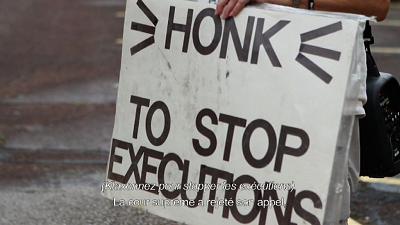
At nightfall, on the outskirts of Salt Lake City, surrounded by his family, a grandmother will attend the execution of her husband's murderer. In Oklahoma, a former death row inmate exonerated after 22 years in prison tells his amazing story. In Texas, a woman struggles against the criminal justice system for her son to survive, while he awaits execution for 14 years. In Huntsville, a small provincial town in eastern Texas, the Department of Correction performs the executions by lethal injection as an almost weekly ritual. This inquisitive documentary looks at the various aspects of the death penalty from victims to perpetrators. Highlighting the numerous absurdities of the system Honk! ignores the crimes committed for a moment, in order to ask one single question: is lethal injection a humane death?
producer: Arnaud Dommerc, Jean-Baptiste Legrand
editor: Léa Masson
camera: Arnaud Gaillard, Florent Vassault
sound: Matthieu Deniau, Sandy Notarianni
production info:
Andolfi
62 rue de Notre Dame de Nazareth
75003 Paris
tel.: +33 950 65 23 05
www.andolfi.fr
www.honk-lefilm.com
filmography
Florent Vassault: Bernard Thomas, les secrets de la gloire (2007)
Arnaud Gaillard & Florent Vassault / France / 2011 / 68 min / English
Crime and capital punishment. Does executing the criminal bring solace to the victim’s family?

producer: Arnaud Dommerc, Jean-Baptiste Legrand
editor: Léa Masson
camera: Arnaud Gaillard, Florent Vassault
sound: Matthieu Deniau, Sandy Notarianni
production info:
Andolfi
62 rue de Notre Dame de Nazareth
75003 Paris
tel.: +33 950 65 23 05
www.andolfi.fr
www.honk-lefilm.com
filmography
Florent Vassault: Bernard Thomas, les secrets de la gloire (2007)
I love you in International Panorama
Pavel Kostomarov & Alexander Rastorguev / Russia / 2011 / 81 min / Russian
Three young Russian men make a film about themselves: hangouts, dates, break-ups, and a lot of bad language.
Viewer discretion advised
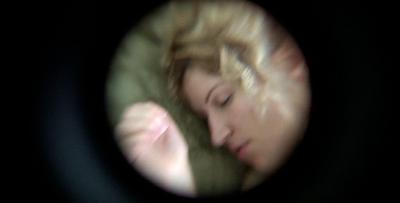
Pavel Kostomarov and Alexander Rastorguev join forces with their protagonists in search of a new film language and methods of documentary filmmaking. The protagonists were chosen in Rostov-on-Don from among fifty open-minded non-professionals who were eager to use a camera and who agreed to record their daily lives as part of the documentary film project. Three of them became central characters in the film. The directors have arranged the real-life stories of three friends into a dynamic mosaic, with love as the leitmotif. The result is a fascinating and humorous melodrama, building strongly on the amateur video language. A low-budget film with collegial authorship that marks the contemporary era.
producer: Sergey Melkumov, Alexander Rodnyansky
editor: Pavel Kostomarov, Aleksandr Rastorguev, Susanna Baranzhieva
camera: Evgeniy Barabashev, Evgeniy Borisov and Stanislav Cherkasov
sound: Georgi Yermolenko
production info:
Non-stop Production
1, Mosfilmovskaya
119991 Moscow, Russia
tel.:+ 7 916 641 67 19
www.nonstop-kino.ru
shneyderova@gmail.com
selected filmography:
Alexander Rastorguev:
You Too (2011) / Tender’s Heat: Wild Wild Beach (2007) / Clean Thursday (2003)
Pavel KostamArov:
You Too (2011) / The Mother (2007) / Transformator (2003)
Pavel Kostomarov & Alexander Rastorguev / Russia / 2011 / 81 min / Russian
Three young Russian men make a film about themselves: hangouts, dates, break-ups, and a lot of bad language.
Viewer discretion advised

producer: Sergey Melkumov, Alexander Rodnyansky
editor: Pavel Kostomarov, Aleksandr Rastorguev, Susanna Baranzhieva
camera: Evgeniy Barabashev, Evgeniy Borisov and Stanislav Cherkasov
sound: Georgi Yermolenko
production info:
Non-stop Production
1, Mosfilmovskaya
119991 Moscow, Russia
tel.:+ 7 916 641 67 19
www.nonstop-kino.ru
shneyderova@gmail.com
selected filmography:
Alexander Rastorguev:
You Too (2011) / Tender’s Heat: Wild Wild Beach (2007) / Clean Thursday (2003)
Pavel KostamArov:
You Too (2011) / The Mother (2007) / Transformator (2003)
The Interim Country (A Film About Kyrgyzstan) in Visual Lab
Thomas Lahusen & Gulzat Egemberdieva & André Loersch / Canada & Kyrgyzstan / 2010 / 36 min / Kyrgyz & Russian
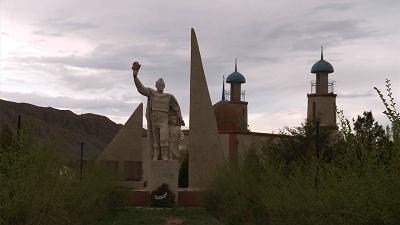 Shot in Spring and Summer of 2010 in Kyrgyzstan, the film chronicles the popular revolt that led to the toppling of president Bakiyev and his clan in April 2010, and the ever-deepening chaos into which the country plunged in its aftermath, culminating with the large-scale inter-ethnic violence in June 2010. Lacking power and legitimacy, and battling its own family network and clan-based divisions, the interim government has had a hard time to stabilize the country politically, economically, and socially. All this is documented through interviews with several top officials, former president Askar Akaev in his Moscow exile, and “people on the street.” From Bishkek to the southern city of Osh, over the breath-taking highway uniting North and South through the Tian-Shan mountain range, Kyrgyz, Uzbeks, Russians, Meshketian Turks, and other ethnic minorities share their anger, frustrations, and hopes.
Shot in Spring and Summer of 2010 in Kyrgyzstan, the film chronicles the popular revolt that led to the toppling of president Bakiyev and his clan in April 2010, and the ever-deepening chaos into which the country plunged in its aftermath, culminating with the large-scale inter-ethnic violence in June 2010. Lacking power and legitimacy, and battling its own family network and clan-based divisions, the interim government has had a hard time to stabilize the country politically, economically, and socially. All this is documented through interviews with several top officials, former president Askar Akaev in his Moscow exile, and “people on the street.” From Bishkek to the southern city of Osh, over the breath-taking highway uniting North and South through the Tian-Shan mountain range, Kyrgyz, Uzbeks, Russians, Meshketian Turks, and other ethnic minorities share their anger, frustrations, and hopes.
trailer
http://chemodanfilms.com/the-interim-country-trailer/
Thomas Lahusen & Gulzat Egemberdieva & André Loersch / Canada & Kyrgyzstan / 2010 / 36 min / Kyrgyz & Russian

trailer
http://chemodanfilms.com/the-interim-country-trailer/
Interrogation in Windows to the Past: Balkan War Reflections
Namik Kabil / Bosnia and Herzegovina / 2007 / 42 min / Bosnian
An investigation of the trauma and denial, which have become a dominant – but silent – dimension of everyday life in the post-war Bosnia and Herzegovina.
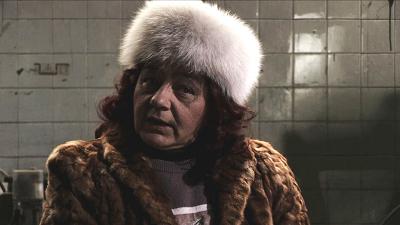 Director Namik Kabil interviews a group of eyewitnesses of the war in Bosnia and Herzegovina in a rusty, dingy, deserted shed. They sit at a table, plastic cup of coffee and ashtray within reach, harshly lit by fluorescent light - as if it were an interrogation. Kabil films them with a handheld camera, against a background of grimy tiles, asking elementary questions about the war. "When did the war start for you?" "What did you eat?" "Did you see dead people?" "Did you learn anything from the war?" And especially, "do we need to talk about the war?" With one exception, they all think they do, but they say many people prefer to keep silent about it. "It's like when you have an elephant in the middle of the room," a woman says, "and everyone pretends it's not there." They talk about their experiences in Sarajevo, in the trenches or abroad, about their dulled feelings, about the solidarity during the war. But despite Kabil's repeated attempts to find out who shot at them, the interviewees still lack the courage to discuss it. "We didn't shoot at ourselves" is one woman's way of evading the question. But to the question as to who won the war, the answer is unanimous: "No one."
Director Namik Kabil interviews a group of eyewitnesses of the war in Bosnia and Herzegovina in a rusty, dingy, deserted shed. They sit at a table, plastic cup of coffee and ashtray within reach, harshly lit by fluorescent light - as if it were an interrogation. Kabil films them with a handheld camera, against a background of grimy tiles, asking elementary questions about the war. "When did the war start for you?" "What did you eat?" "Did you see dead people?" "Did you learn anything from the war?" And especially, "do we need to talk about the war?" With one exception, they all think they do, but they say many people prefer to keep silent about it. "It's like when you have an elephant in the middle of the room," a woman says, "and everyone pretends it's not there." They talk about their experiences in Sarajevo, in the trenches or abroad, about their dulled feelings, about the solidarity during the war. But despite Kabil's repeated attempts to find out who shot at them, the interviewees still lack the courage to discuss it. "We didn't shoot at ourselves" is one woman's way of evading the question. But to the question as to who won the war, the answer is unanimous: "No one."
producer: Amra Bakšić Čamo
editor: Timur Makarević
camera: Almir Djikoli, Boris Jugo
sound: Igor Čamo
music: Dino Šaran
production info:
Sarajevo Center for Contemporary Art - SCCA
Obala Kulina bana 22
71000 Sarajevo
Bosnia & Herzegovina
tel.: + 387 33 665 304
www.scca.ba
selected filmography
Magnet (2011) / Vjernici (2009) / Nightguards (2008) / Crna hronika (2004)
Namik Kabil / Bosnia and Herzegovina / 2007 / 42 min / Bosnian
An investigation of the trauma and denial, which have become a dominant – but silent – dimension of everyday life in the post-war Bosnia and Herzegovina.

producer: Amra Bakšić Čamo
editor: Timur Makarević
camera: Almir Djikoli, Boris Jugo
sound: Igor Čamo
music: Dino Šaran
production info:
Sarajevo Center for Contemporary Art - SCCA
Obala Kulina bana 22
71000 Sarajevo
Bosnia & Herzegovina
tel.: + 387 33 665 304
www.scca.ba
selected filmography
Magnet (2011) / Vjernici (2009) / Nightguards (2008) / Crna hronika (2004)
Into Eternity in International Panorama
Michael Madsen / Denmark & Sweden & Finland & Italy / 2010 / 75 min / English & Swedish & Finnish
The world's final resting place for nuclear waste is soon to be sealed for 100,000 years. How can we prevent distant future generations from thinking they have found hidden treasure, or the pyramids of our time?
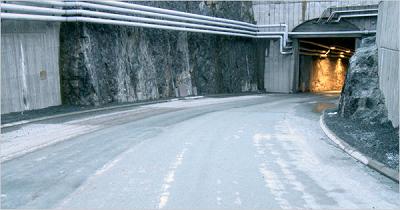
Every day, large quantities of highly radioactive waste created by nuclear power plants are placed in interim storage, which however is vulnerable to natural disasters and societal changes. In Onkalo, Finland, the world’s first permanent repository is being hewn out of solid rock to bury this waste. Onkalo is a gigantic network of tunnels being carved out of bedrock that will start receiving Finland’s nuclear waste in 2020. Once the repository is full, in about 100 years, it will be closed and will hopefully remain sealed for at least 100,000 years. Into Eternity takes viewers deep into the Onkalo facility as it is being constructed and asks Onkalo representatives, scientists, theologians and others to address fundamental but challenging questions, including how to warn distant generations of the deadly waste our civilization left behind? How do we prevent them from thinking they have found the pyramids of our time, mystical burial grounds, or hidden treasures? The film not only raises questions about the possibility of long-term nuclear waste storage, but also invites reflection on the limits of science and human knowledge, along with our responsibility to future generations and the heritage we leave behind.
producer: Lise Lense-Møller
editor: Daniel Dencik, Stefan Sundlöf
camera: Heikki Färm
sound: Nicolai Linck, Øivind Weingaarde
production info:
AUTLOOK
Magic Hour Films in co-production with Atmo Media Network & Film i Väst & Mouka Filmi
DK-Baldersgade 6
2200 Copenhagen N, Denmark
tel.: +45 3964 2284
post@magichourfilms.dk
www.magichourfilms.dk
Producer Lise Lense-Møller
post@magichourfilms.dk
selected filmography
To Damascus (2005) / Celestial Night: A Film on Visibility (2003)
Michael Madsen / Denmark & Sweden & Finland & Italy / 2010 / 75 min / English & Swedish & Finnish
The world's final resting place for nuclear waste is soon to be sealed for 100,000 years. How can we prevent distant future generations from thinking they have found hidden treasure, or the pyramids of our time?

producer: Lise Lense-Møller
editor: Daniel Dencik, Stefan Sundlöf
camera: Heikki Färm
sound: Nicolai Linck, Øivind Weingaarde
production info:
AUTLOOK
Magic Hour Films in co-production with Atmo Media Network & Film i Väst & Mouka Filmi
DK-Baldersgade 6
2200 Copenhagen N, Denmark
tel.: +45 3964 2284
post@magichourfilms.dk
www.magichourfilms.dk
Producer Lise Lense-Møller
post@magichourfilms.dk
selected filmography
To Damascus (2005) / Celestial Night: A Film on Visibility (2003)
Invisible Strings- The Talented Pusker Sisters in Hungarian Panorama
Ágnes Sós / 2010 / Hungary / 70 min / Hungarian
If your greatest rival were the person who you loved the most how would you break free from her shadow? A film about family, love and music.
 Júlia and Ágnes Pusker are two exceptionally talented violinists living Kecskemét, who also happen to be sisters. Two girls who both have an extraordinary musical talent and a passion for music inherited from their family. This film looks at the complexity of professional and family ties when talent, career and family bonds require patience, generosity and unconditional love. Julia és Ágnes’ special bond is strengthened by their profound love for music.
Júlia and Ágnes Pusker are two exceptionally talented violinists living Kecskemét, who also happen to be sisters. Two girls who both have an extraordinary musical talent and a passion for music inherited from their family. This film looks at the complexity of professional and family ties when talent, career and family bonds require patience, generosity and unconditional love. Julia és Ágnes’ special bond is strengthened by their profound love for music.
producer: Marc B. Lorber, Dorota Roszkowska, György Czutor
editor: Thomas Ernst
camera: Ágnes Sós, András Petróczy, Károly Markert
sound: Gábor Császár
music: Attila Reményi
production info:
HBO Holding Zrt.
Riadó u.5.
1026 Budapest, Hungary
Eva.koteles@hbo.hu
tel.: + 36 1 372-3700
selected filmography
Őrült szerelem ez (2009) / A Dobópápa (2007) / Akartam volna mutatni (2006) / Hangköz (2005) / Magamról röviden csak annyit… (Ferenczi Gáborral) (2002) / Kitoloncoltak (Ferenczi Gáborral) (1993)
Ágnes Sós / 2010 / Hungary / 70 min / Hungarian
If your greatest rival were the person who you loved the most how would you break free from her shadow? A film about family, love and music.

producer: Marc B. Lorber, Dorota Roszkowska, György Czutor
editor: Thomas Ernst
camera: Ágnes Sós, András Petróczy, Károly Markert
sound: Gábor Császár
music: Attila Reményi
production info:
HBO Holding Zrt.
Riadó u.5.
1026 Budapest, Hungary
Eva.koteles@hbo.hu
tel.: + 36 1 372-3700
selected filmography
Őrült szerelem ez (2009) / A Dobópápa (2007) / Akartam volna mutatni (2006) / Hangköz (2005) / Magamról röviden csak annyit… (Ferenczi Gáborral) (2002) / Kitoloncoltak (Ferenczi Gáborral) (1993)
Iron Curtain – Theatre in the Penitentiary of Vác in Hungarian Panorama
Glória Halász / 2011 / Hungary / 69 min / Hungarian
A dedicated volunteer and an enthusiastic group of prisoners find trust and creativity in theater.
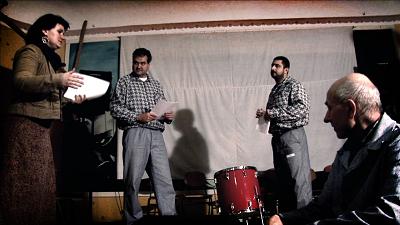 In the Vác Penitentiary a theatre group has been working for years – its actors are inmates. This film follows the work of a dedicated director and her enthusiastic group who, despite their isolation and the difficult circumstances, hold on to the redeeming power of art and artistic expression. While rehearsing the The Party by Sławomir Mrożek, the inmates talk about crime and punishment, being cast out, rootlessness, virtues and the effects of the environment and circumstances on one’s personality. Their personal stories are intertwined with their characters’ to reveal different fates and different sorrows.
In the Vác Penitentiary a theatre group has been working for years – its actors are inmates. This film follows the work of a dedicated director and her enthusiastic group who, despite their isolation and the difficult circumstances, hold on to the redeeming power of art and artistic expression. While rehearsing the The Party by Sławomir Mrożek, the inmates talk about crime and punishment, being cast out, rootlessness, virtues and the effects of the environment and circumstances on one’s personality. Their personal stories are intertwined with their characters’ to reveal different fates and different sorrows.
producer: Glória Halász
editor: Dávid Reisinger
camera: Dávid Reisinger
sound: Szilárd Horváth
music: Albert Márkos, Hunor G. Szabó
production info:
Beertok Kft.
Balzac u. 35.
1136 Budapest, Hungary
vasfuggonyfilm@gmail.com
tel.: +36 70 635 28 03
selected filmography
Mari néni (2010) / Performance (2007) / KifestŐ (2006) / Sirály (2004)
Glória Halász / 2011 / Hungary / 69 min / Hungarian
A dedicated volunteer and an enthusiastic group of prisoners find trust and creativity in theater.

producer: Glória Halász
editor: Dávid Reisinger
camera: Dávid Reisinger
sound: Szilárd Horváth
music: Albert Márkos, Hunor G. Szabó
production info:
Beertok Kft.
Balzac u. 35.
1136 Budapest, Hungary
vasfuggonyfilm@gmail.com
tel.: +36 70 635 28 03
selected filmography
Mari néni (2010) / Performance (2007) / KifestŐ (2006) / Sirály (2004)
Kabul Dream Factory in International Panorama
Sebastian Heidinger / Germany / 2011 / 83 min / Dari
One woman, three careers: actress, policewoman, filmmaker. Saba Sahar fights to make Afghan society see its women without their veils.
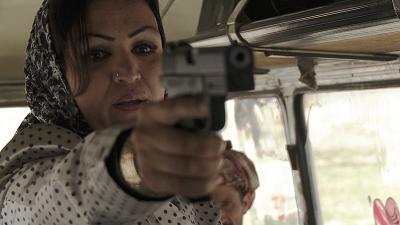
At an advanced training course, all in uniform, Afghani provincial policemen watch a film: dressed in bright red, a woman defeats arrogant machos and fights off their violent attacks with Bollywood-style martial arts. Kabul Dream Factory tells the story of an exceptional Afghani woman, Saba Sahar, who combines a career as a policewoman with one as an actress and film director as she fights for society to recognise the independence of Afghani women. The film accompanies her as she tries to bring her new film project to fruition. Meetings with potential financial backers and attempts at getting support from western aid organizations sketch out the positions of the western donors as well as internal power hierarchies. Only gradually does Sahar lift the veil of privacy and, with her nine-month-old baby on her lap, open herself up to an almost idyllic future at the end of the story. Her utopian dream of the autonomy of woman becomes embedded in hopes and memories as Sahar taps out the rhythm of a song by an old Afghani singer on her little daughter’s temple.
producer: Nils Bökamp, Felix Kriegsheim
editor: Alexander Fuchs
camera: Alexander Gheorghiu
sound:, Sebastian Heidinger
production info:
Boekamp & Kriegsheim GmbH
Eisenbahnstrasse 11
10997 Berlin, Germany
tel.: + 49 30 609 800 880
mail@boekampkriegsheim.com
www.boekampkriegsheim.com
selected filmography
Drifter (2007) / Lichtenberg (2004) / Der Prinz / Ludwig Zwo / Harakiri (2003) / Pelikanismus – Das Tobias Delius 4tet (1999) / Ahab im Altersheim (1998)
Sebastian Heidinger / Germany / 2011 / 83 min / Dari
One woman, three careers: actress, policewoman, filmmaker. Saba Sahar fights to make Afghan society see its women without their veils.

producer: Nils Bökamp, Felix Kriegsheim
editor: Alexander Fuchs
camera: Alexander Gheorghiu
sound:, Sebastian Heidinger
production info:
Boekamp & Kriegsheim GmbH
Eisenbahnstrasse 11
10997 Berlin, Germany
tel.: + 49 30 609 800 880
mail@boekampkriegsheim.com
www.boekampkriegsheim.com
selected filmography
Drifter (2007) / Lichtenberg (2004) / Der Prinz / Ludwig Zwo / Harakiri (2003) / Pelikanismus – Das Tobias Delius 4tet (1999) / Ahab im Altersheim (1998)
Karla’s Arrival in International Panorama
Koen Suidgeest / Belgium & Spain & USA / 2010 / 90 min / Spanish
A 19-year-old and her baby daughter live in a park in the Nicaraguan capital. How does she survive, homeless with a newborn baby?
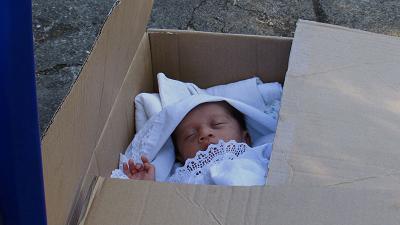
Karla's Arrival follows 19-year old mother Sujeylin Aguilar and her baby Karla, as they struggle through the first year of the child's life. One day after beiong born, Karla travels in a cardboard box straight from the hospital to her future home: a park in the Nicaraguan capital Managua. Her underage mother Sujeylin ran away from home, became a drug addict and ended up on the streets, where she met Karla's father Juan Carlos. The story starts three months before Karla's birth and ends around her first birthday. For eight years now, Sujeylin has been living off the generosity of her wheeling-and-dealing boyfriend and the NGO's peppering the city. She doesn't expect the arrival of her baby to change much in her own life, planning to raise her in the park where she forms part of a group of colorful characters she considers her only family. Karla's Arrival takes its audience on the intense personal journey of a young woman's venture into motherhood under extreme circumstances. Narrated by the protagonist herself and told with gracious intimacy, the film offers a story full of hope, covering a universal issue we have not yet been exposed to.
producer: Koen Suidgeest, Emily Lobsenz
editor: Jan De Coster
camera: Koen Suidgeest
sound: Gerardo Pietrafesa
music: Martin Rasskin
production info:
El Rayo Films S.L.
Calle Infantas 21, 3° 1°
28004 Madrid, Spain
tel.: + 34 913 604 828
info@elrayofilms.com
www.elrayofilms.com
www.karlasarrival.com
filmography
Casting (2006)
Koen Suidgeest / Belgium & Spain & USA / 2010 / 90 min / Spanish
A 19-year-old and her baby daughter live in a park in the Nicaraguan capital. How does she survive, homeless with a newborn baby?

producer: Koen Suidgeest, Emily Lobsenz
editor: Jan De Coster
camera: Koen Suidgeest
sound: Gerardo Pietrafesa
music: Martin Rasskin
production info:
El Rayo Films S.L.
Calle Infantas 21, 3° 1°
28004 Madrid, Spain
tel.: + 34 913 604 828
info@elrayofilms.com
www.elrayofilms.com
www.karlasarrival.com
filmography
Casting (2006)
Katka in Helena Třeštíková Retrospective
Helena Třeštíková / Czech Republic / 2010 / 90 min / Czech
After a14-year downward spiral of drug addiction, theft, prostitution, and illness, will Katka finally find the strength to start a new life when she becomes pregnant?
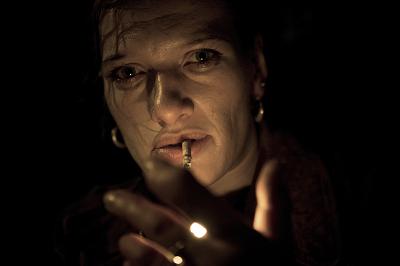
We first meet Katka in 1996 as a 19-year-old girl in a therapy community. Already an addict for four years, Katka is looking forward to leading the normal life, finding a boyfriend, and starting a family. But the seduction of drugs is stronger: we next meet Katka on the streets of Prague, where she is experiencing a love affair with heroin together with her boyfriend Láďa. Her life is spiralling downwards in a desperate cycle of theft, the search for drugs, moments of unhampered joy and more theft. After she breaks up with Láďa prostitution becomes her main source of income. Katka's awareness of the hopelessness of her existence and serious liver disease finally lead her to embark on methadone substitution treatment. With her new boyfriend Roman, it looks as if there is still a chance for a happy ending: Katka is pregnant, and this time she is determined to stop taking drugs. Yet once her daughter is born, she must come to grips with the fact that things have only gotten worse.
producer: Kateřina Černá
editor: Jakub Hejna
camera: Kristián Hynek, Vlastimil Hamerník, Martin Kubala, Ferdinand Mazurek, Braňo Pažitka, Miroslav Souček, Tomáš Třeštík
sound: Václav Hejduk, Stanislav Hruška, Jaroslav Jehlička
music: Tadeáš Věrčák
production info:
Co-production: Negativ Film Productions & Ceská Televize
Negativ s.r.o. Ostrovní 30
110 00 Praha
1 Czech Republic
tel.: +420 224 933 755
fax: +420 224 933 472
office@negativ.cz
www.negativ.cz
selected filmography
René (2008) / Marcela (2007) / Manzelské etudy po dvaceti letech (2006) / Marriage Stories, 20 Years Later (2006) / Hitler, Stalin, and I (2001) / Women at the Turn of the Century (Trapped) (2001) / Women at the Turn of the Century: Forte and pianos (2000) / Sladke stoleti (1997) / Ripening of Evil (1996) / An Attempt at an Anniversary (1995) / Lida Baarova's Bittersweet Memories (1995) / To Be or to Have (1994) / Rekni mi neco o sobe - Láda (1993) / Rekni mi neco o sobe - Pavlína (1992) / Rekni mi neco o sobe - René (1992) / I Created You (1991) / Behind the Bars (1990) / Hledání cest (1989) / Marriage Stories (1987) / A Thousand Years of the Sobriety (1987) / Z lásky (1987) / Japanese Sunday (1981) / Dotek svetla (1980) / Two Anniversaries of Jan Zrzavy (1976) / The Miracle (1975)
Helena Třeštíková / Czech Republic / 2010 / 90 min / Czech
After a14-year downward spiral of drug addiction, theft, prostitution, and illness, will Katka finally find the strength to start a new life when she becomes pregnant?

producer: Kateřina Černá
editor: Jakub Hejna
camera: Kristián Hynek, Vlastimil Hamerník, Martin Kubala, Ferdinand Mazurek, Braňo Pažitka, Miroslav Souček, Tomáš Třeštík
sound: Václav Hejduk, Stanislav Hruška, Jaroslav Jehlička
music: Tadeáš Věrčák
production info:
Co-production: Negativ Film Productions & Ceská Televize
Negativ s.r.o. Ostrovní 30
110 00 Praha
1 Czech Republic
tel.: +420 224 933 755
fax: +420 224 933 472
office@negativ.cz
www.negativ.cz
selected filmography
René (2008) / Marcela (2007) / Manzelské etudy po dvaceti letech (2006) / Marriage Stories, 20 Years Later (2006) / Hitler, Stalin, and I (2001) / Women at the Turn of the Century (Trapped) (2001) / Women at the Turn of the Century: Forte and pianos (2000) / Sladke stoleti (1997) / Ripening of Evil (1996) / An Attempt at an Anniversary (1995) / Lida Baarova's Bittersweet Memories (1995) / To Be or to Have (1994) / Rekni mi neco o sobe - Láda (1993) / Rekni mi neco o sobe - Pavlína (1992) / Rekni mi neco o sobe - René (1992) / I Created You (1991) / Behind the Bars (1990) / Hledání cest (1989) / Marriage Stories (1987) / A Thousand Years of the Sobriety (1987) / Z lásky (1987) / Japanese Sunday (1981) / Dotek svetla (1980) / Two Anniversaries of Jan Zrzavy (1976) / The Miracle (1975)
Khodorkovsky in International Panorama
Cyril Tuschi / Germany / 2011 / 111 min / English & German & Russian
From socialist activist to innovative capitalist, and then to prisoner of conscience - Mikhail Khodorkovsky’s story highlights the struggle over justice in post-Soviet Russia.
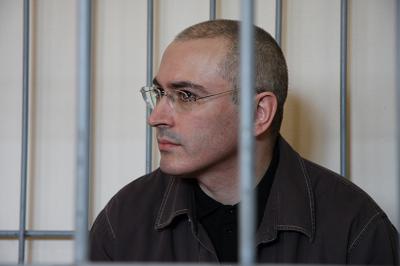
For many young Russians, Mikhail Khodorkovsky, the former head of oil giant Yukos, is someone who stole a lot of money from their country. Others see him as a martyr, who stood in President Vladimir Putin's way and was therefore "removed" for political reasons to a Siberian jail, where his sentence was recently extended. But why did Russia's richest man return to the country from abroad when he had been given clear signals that he would be arrested and convicted? The director sets out to examine the circumstances surrounding the entire case, and even succeeds in recording a short interview with Khodorkovsky himself, the only one that was given during his imprisonment and court hearings. By way of interviews with relatives, colleagues and politicians, the filmmaker tries to ascertain the real reasons behind Khodorkovsky's detention.
producer: Cyril Tuschi
editor: Claudia Simonesci
camera: Cyril Tuschi
sound: Martin Frühmorgen
music: Arvo Part
production info:
LALA Film, Cyril Tuschi
Sophienstr. 18, 101 78 Berlin
cyril@lalafilms.de
http://www.khodorkovsky-movie.com/
selected filmography
Slight Changes in Temperature and Mind (2004) / TURN! (1997) / Nightland (1996) / Windrush (1995) / Excuses (1994) / Close (1993) / Frankfurt am Meer (1992)
Cyril Tuschi / Germany / 2011 / 111 min / English & German & Russian
From socialist activist to innovative capitalist, and then to prisoner of conscience - Mikhail Khodorkovsky’s story highlights the struggle over justice in post-Soviet Russia.

producer: Cyril Tuschi
editor: Claudia Simonesci
camera: Cyril Tuschi
sound: Martin Frühmorgen
music: Arvo Part
production info:
LALA Film, Cyril Tuschi
Sophienstr. 18, 101 78 Berlin
cyril@lalafilms.de
http://www.khodorkovsky-movie.com/
selected filmography
Slight Changes in Temperature and Mind (2004) / TURN! (1997) / Nightland (1996) / Windrush (1995) / Excuses (1994) / Close (1993) / Frankfurt am Meer (1992)
Lora - Testimonies in Windows to the Past: Balkan War Reflections
Nenad Puhovski / Croatia / 2004 / 65 min / Croatian
Does anyone remember what happened in the Lora concentration camp, in Croatia, 1992-1996? If they do, do they want to?
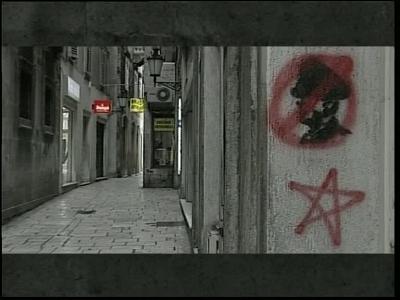 A film about the prison located in the Lora military port area of Split, where over 1000 prisoners from Split, Dalmatia, Yugoslavia and Bosnia Herzegovina were held from 1992 until 1996. The testimonies recorded in this film confirm the system of brutal torture and also the death or disappearance of some 70 prisoners. Former Croatian military police officers claim they can no longer remember the events in question, despite the detailed accounts previously given to pre-trial investigators. Likewise, former inmates of the prison have declined to answer court summons or have changed their testimony on the stand.
A film about the prison located in the Lora military port area of Split, where over 1000 prisoners from Split, Dalmatia, Yugoslavia and Bosnia Herzegovina were held from 1992 until 1996. The testimonies recorded in this film confirm the system of brutal torture and also the death or disappearance of some 70 prisoners. Former Croatian military police officers claim they can no longer remember the events in question, despite the detailed accounts previously given to pre-trial investigators. Likewise, former inmates of the prison have declined to answer court summons or have changed their testimony on the stand.
producer: Veran Matič, Nenad Puhovski
editor: Žarko Korač
camera: Silvestar Kolbas
sound: Mladen Škalec, Tomislav Hleb
music: Pere Ištvančić
production info:
Factum Documentary Film Project
Nova Ves 18
10 000 Zagreb
Croatia
tel.: +385 1 4854 821
info@factum.com.hr
selected filmography
Together (2009) / Pavilion 22 (2002) / U pozadini (1984) / Pet filmova o Nives K.K. (1980) / Groznica (1979) / Bog igre (1975) / Tojota Korola 1000 (1974)
Nenad Puhovski / Croatia / 2004 / 65 min / Croatian
Does anyone remember what happened in the Lora concentration camp, in Croatia, 1992-1996? If they do, do they want to?

producer: Veran Matič, Nenad Puhovski
editor: Žarko Korač
camera: Silvestar Kolbas
sound: Mladen Škalec, Tomislav Hleb
music: Pere Ištvančić
production info:
Factum Documentary Film Project
Nova Ves 18
10 000 Zagreb
Croatia
tel.: +385 1 4854 821
info@factum.com.hr
selected filmography
Together (2009) / Pavilion 22 (2002) / U pozadini (1984) / Pet filmova o Nives K.K. (1980) / Groznica (1979) / Bog igre (1975) / Tojota Korola 1000 (1974)
Loving Sophia in International Panorama
Ohad Itach / Israel / 2010 / 72 min / Hebrew & Russian
From promising singer in a rock-band to drug addict and prostitute: how long is the road back?
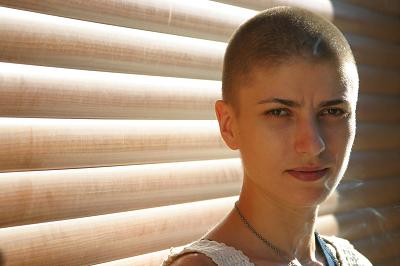
The dark side of growing up as a new immigrant are powerfully explored in this intense documentary. Out on assignment to do a reportage on a prostitute for TV, filmmaker Ohad Itach meets Sophia, a drug-addict who prostitutes herself to earn money for yet another dose. Sophia is both strong and weak, vulnerable and impervious. Arriving in Israel from Moldova in the 1990s left her unstable and yearning for more. Sophia’s well-educated parents were unable to control their only daughter as she rapidly descended from singer in a rock-band to drug addict. Yet the family does give up hope of seeing their daughter come clean. Sophia’s wrenching journey into darkness and her struggle to come back to life without drugs is intimately documented by Ohad Itach, whose chance meeting with Sophia led not only to a powerful film, but to the possibility of moving forward.
producer: Ohad Itach
editor: Yoav Raz
camera: Haim Asias, Ohad Itach
sound: Alex Claude
music: Ophir Leibovitch
production info:
True production Ltd.
14 Chen Blvd
64071 Tel Aviv, Israel
tel: +972 50 759 0060
Ohad Itach / Israel / 2010 / 72 min / Hebrew & Russian
From promising singer in a rock-band to drug addict and prostitute: how long is the road back?

producer: Ohad Itach
editor: Yoav Raz
camera: Haim Asias, Ohad Itach
sound: Alex Claude
music: Ophir Leibovitch
production info:
True production Ltd.
14 Chen Blvd
64071 Tel Aviv, Israel
tel: +972 50 759 0060
The Maelstrom: A Family Chronicle in Evidence: Archival Footage in Documentary
Péter Forgács / Hungary & The Netherlands / 1997 / 60 min / English
Family gatherings, birthdays, outings, weddings – a rich family home movie archive. A Jewish Dutch family in the shadow of the Holocaust.
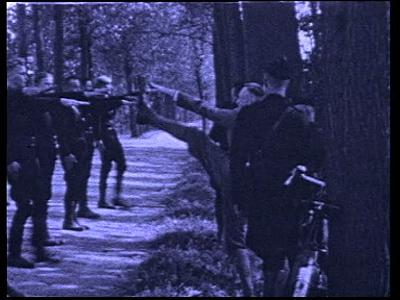
The Maelstrom follows the Peerebooms, a Jewish Dutch family, between 1932 and 1942 via the home movies of one of the sons, Max. With the Nazi occupation of the Netherlands, the film shifts to comparing the fortunes of the Peerebooms with those of the Austrian family of Reich Commissioner for The Netherlands Arthur Seyss-Inquart. Amateur footage lends immediacy and poignancy to the historical events of the 1930s and 1940s. Additional information is conveyed through subtitles; the soundtrack combines period sound from radio broadcasts with a brooding score by Tibor Szemző. The Maelstrom shows a Jewish family living in the shadow of the Holocaust, but still unaware of what it will ultimately mean.
producer: Cesar Messemaker
editor: Kati Juhász
music: Tibor Szemző
sound: Zsolt Hubay
production info:
Lumen Film Productions
Korte Prinsengracht 17d, NL-1013 GN
Amsterdam, Netherlands
tel.: +31 (0)20 623 26 00
info@lumenfilm.demon.nl
selected filmography
Hunky Blues - The American Dream (2009) / Own Death (2007) / Miss Universe 1929 - Lisl Goldarbeiter. A Queen in Wien (2006) / El Perro Negro: Stories from the Spanish Civil War (2005) / A Bibo Reader (2002) / Angelos' film (2001) / The Danube Exodus (1998) / Free Fall (1998) / Domweg gelukkig (1995) / Wittgenstein Tractatus (1992)
Péter Forgács / Hungary & The Netherlands / 1997 / 60 min / English
Family gatherings, birthdays, outings, weddings – a rich family home movie archive. A Jewish Dutch family in the shadow of the Holocaust.

producer: Cesar Messemaker
editor: Kati Juhász
music: Tibor Szemző
sound: Zsolt Hubay
production info:
Lumen Film Productions
Korte Prinsengracht 17d, NL-1013 GN
Amsterdam, Netherlands
tel.: +31 (0)20 623 26 00
info@lumenfilm.demon.nl
selected filmography
Hunky Blues - The American Dream (2009) / Own Death (2007) / Miss Universe 1929 - Lisl Goldarbeiter. A Queen in Wien (2006) / El Perro Negro: Stories from the Spanish Civil War (2005) / A Bibo Reader (2002) / Angelos' film (2001) / The Danube Exodus (1998) / Free Fall (1998) / Domweg gelukkig (1995) / Wittgenstein Tractatus (1992)
Marathon Boy in International Panorama
Gemma Atwal / India & UK / 2010 / 98 min / English & Hindi & Oriya
A four-year-old boy is plucked from the slums of India to become the country’s greatest runner. A tale of greed, aspiration, and broken dreams.
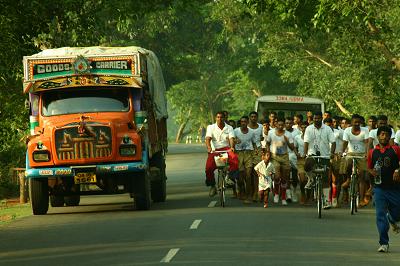
Gemma Atwal's dynamic epic follows four-year-old Budhia, rescued from poverty by Biranchi Das, a judo coach who runs an orphanage for slum children in the eastern Indian state of Orissa. When Budhia displays an uncommon talent for long distance running, Biranchi nurtures his gift, heralding him as a folk hero for the impoverished masses, and maybe even for India itself. But after golden child Budhia breaks down during a world-record 65 kilometer run at the age of four, public opinion begins to turn against the guru and his disciple, and soon the two are swept up in a maelstrom of media controversy and political scandal. Following Budhia's roller-coaster journey over five years, Marathon Boy is a Dickensian tale of greed, corruption, and broken dreams set between the heart-pounding world of marathon running, the poverty-stricken slums and the political intrigue of a modernizing India.
producer: Gemma Atwal, Matt Norman
editor: Peter Haddon
camera: Matt Norman
sound: Ajay Bedi, Subramanian Mani
music: Garry Hughes
production info:
Gemma Atwal
One Horse Town Productions
5 Downs Park West, Westbury Park, Bristol. BS6 7QQ
tel.: +44 7870 603926
gemma@marathonboymovie.com
www.marathonboymovie.com
Gemma Atwal / India & UK / 2010 / 98 min / English & Hindi & Oriya
A four-year-old boy is plucked from the slums of India to become the country’s greatest runner. A tale of greed, aspiration, and broken dreams.

producer: Gemma Atwal, Matt Norman
editor: Peter Haddon
camera: Matt Norman
sound: Ajay Bedi, Subramanian Mani
music: Garry Hughes
production info:
Gemma Atwal
One Horse Town Productions
5 Downs Park West, Westbury Park, Bristol. BS6 7QQ
tel.: +44 7870 603926
gemma@marathonboymovie.com
www.marathonboymovie.com
Marcela in Helena Třeštíková Retrospective
Helena Třeštíková / Czech Republic / 2007 / 82 min / Czech
Early marriage, motherhood, divorce, the death of a child, and unemployment: the fortunes and misfortunes of Marcela Haverlandová filmed over the course of 25 years.
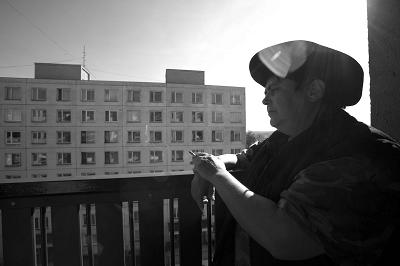
The life of Marcela Haverlandová, an ordinary Czech woman is explored throughout years of her life. Marcela married Jiří in 1980. She could not foresee that she would have problems with her flat and her mother-in-law, that she would give birth to a daughter, and that only 2 years later she would divorce. Unraveling before our eyes is the authentic story of an ordinary woman in an inadequate social environment and a less than satisfactory relationship. As the couple began to drift apart, the filmmaker focused more and more on Marcela. The documentary sees her through not only everyday problems and disappointments but also the considerable shocks she has endured: her divorce, the birth of a son with severe developmental problems, and the sudden death of her daughter, Ivana - a tragedy that leaves Marcela caught between her despair and desire to end her life and the responsibility she bears for her remaining son.
producer: Kateřina Černá, Pavel Strnad, Anna Becková
editor: Alois Fišárek, Lenka Polesná, Zdenek Patočka
camera: Jan Malíř, Miroslav Souček, Vlastimil Hamerník
sound: Zbyněk Mikulík, Petr Provazník, Jan Valouch
Helena Třeštíková / Czech Republic / 2007 / 82 min / Czech
Early marriage, motherhood, divorce, the death of a child, and unemployment: the fortunes and misfortunes of Marcela Haverlandová filmed over the course of 25 years.

producer: Kateřina Černá, Pavel Strnad, Anna Becková
editor: Alois Fišárek, Lenka Polesná, Zdenek Patočka
camera: Jan Malíř, Miroslav Souček, Vlastimil Hamerník
sound: Zbyněk Mikulík, Petr Provazník, Jan Valouch
Marriage Stories 20 Years Later – Ivana and Václav in Helena Třeštíková Retrospective
Helena Třeštíková / Czech Republic / 2006 / 57 min / Czech
More than two decades after their marriage, the film follows up on Ivana and Václav, and wonders whether their personal and professional dreams have come true since their marriage in 1980.
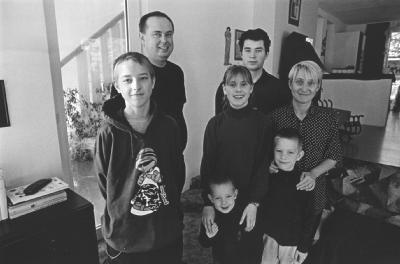 In 1980, architecture students Ivana and Vašek decided to manage both family life and professional ambitions. They had maried a year earlier and had recently welcomed a baby into their lives. As the two tried to keep up with their studies while looking after their child in a cramped apartment, the couple displayed optimism about their future despite their taxing circumstances. In 1999, Trestikova paid a visit to Vaclav and Ivana on the occasion of their twentieth anniversary, and found that not everything had worked out as they had hoped; Vaclav's career in architecture didn't pan out and now he runs a furniture store that's slowly going broke while the stress of looking after their five children has pushed Ivana to the edge of a nervous breakdown. Yet they have managed to keep the most precious thing: their relationship.
In 1980, architecture students Ivana and Vašek decided to manage both family life and professional ambitions. They had maried a year earlier and had recently welcomed a baby into their lives. As the two tried to keep up with their studies while looking after their child in a cramped apartment, the couple displayed optimism about their future despite their taxing circumstances. In 1999, Trestikova paid a visit to Vaclav and Ivana on the occasion of their twentieth anniversary, and found that not everything had worked out as they had hoped; Vaclav's career in architecture didn't pan out and now he runs a furniture store that's slowly going broke while the stress of looking after their five children has pushed Ivana to the edge of a nervous breakdown. Yet they have managed to keep the most precious thing: their relationship.
producer: Anna Beckov
editor: Zdenek Patočka
camera: Vlastimil Hamerník, Miroslav Souček, Richard Špůr, Jan Malíř
sound: Jan Valouch, Miroslav Šimčík, Vladimír Nahodil, Zbyněk Mikulík
Helena Třeštíková / Czech Republic / 2006 / 57 min / Czech
More than two decades after their marriage, the film follows up on Ivana and Václav, and wonders whether their personal and professional dreams have come true since their marriage in 1980.

producer: Anna Beckov
editor: Zdenek Patočka
camera: Vlastimil Hamerník, Miroslav Souček, Richard Špůr, Jan Malíř
sound: Jan Valouch, Miroslav Šimčík, Vladimír Nahodil, Zbyněk Mikulík
Marriage Stories 20 Years Later - Zuzana and Stanislav in Helena Třeštíková Retrospective
Helena Třeštíková / Czech Republic / 2006 / 57 min / Czech
A long-term observational documentary in which Zuzana and Stanislav share the challenges and disappointments of their early marriage and discuss what has become of their lives since the separation.
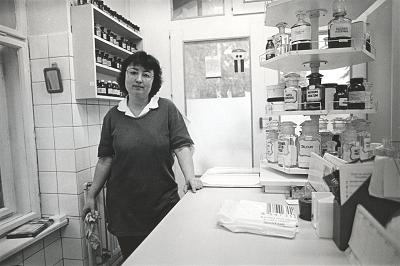 During the period 1981–2005, filmmaker Helena Třeštíková followed the progress of couples who married at the beginning of the 1980s and, over the subsequent two decades, had to confront their dreams and ideals with a society in transformation. “You and I, that’s who we are…” such were the lyrics of Zuzana’s and Stanislav’s favourite band Olympic; however, they never managed to accomplish the “we.” They married out of necessity; she was still in her final year at grammar school, he was an electrical technician just one year older. Due to difficult housing conditions, they started living together only three years after their wedding. Though they already had two children at the time, the immaturity of their early marriage as well as their completely different characters soon started to take their toll. While energetic Stanislav kept moving forward in life, towards new interests, a new job and a new relationship, ambitionless Zuzana, whom motherhood prevented from making her own way in life, remains passive and is having difficulties finding a new partner.
During the period 1981–2005, filmmaker Helena Třeštíková followed the progress of couples who married at the beginning of the 1980s and, over the subsequent two decades, had to confront their dreams and ideals with a society in transformation. “You and I, that’s who we are…” such were the lyrics of Zuzana’s and Stanislav’s favourite band Olympic; however, they never managed to accomplish the “we.” They married out of necessity; she was still in her final year at grammar school, he was an electrical technician just one year older. Due to difficult housing conditions, they started living together only three years after their wedding. Though they already had two children at the time, the immaturity of their early marriage as well as their completely different characters soon started to take their toll. While energetic Stanislav kept moving forward in life, towards new interests, a new job and a new relationship, ambitionless Zuzana, whom motherhood prevented from making her own way in life, remains passive and is having difficulties finding a new partner.
producer: Anna Beckov
editor: Zdenek Patočka
camera: Vlastimil Hamerník, Miroslav Souček, Richard Špůr, Jan Malíř
sound: Jan Valouch, Miroslav Šimčík, Vladimír Nahodil, Zbyněk Mikulík
Helena Třeštíková / Czech Republic / 2006 / 57 min / Czech
A long-term observational documentary in which Zuzana and Stanislav share the challenges and disappointments of their early marriage and discuss what has become of their lives since the separation.

producer: Anna Beckov
editor: Zdenek Patočka
camera: Vlastimil Hamerník, Miroslav Souček, Richard Špůr, Jan Malíř
sound: Jan Valouch, Miroslav Šimčík, Vladimír Nahodil, Zbyněk Mikulík
Miner’s Day in International Panorama
Andrey Gryazev / Russia / 2010 / 62 min / Russian
Unemployment, drugs, violence, and love in a deserted Russian mining town. A film about the astonishing strength it takes to survive in the harshest conditions.
Viewer discretion advised
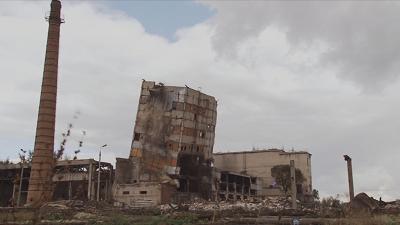
A small mining town in central Russia. 15 years ago it offered a secure life and a place to work. The mine has closed, but the old residential blocks remain, still housing families of ex-miners, many of whom lost their jobs and direction in life. How do these families survive if there are no jobs for anybody over 35? The film focuses on the relationship between Sasha and Irina. After an unsuccessful attempt to find work in Moscow, 37-year-old Sasha returns home to his disabled wife and looks for a job, receiving continuous rejections on the grounds that he is “too old.” Irina’s brother, recently released from prison after serving a sentence for homicide, moves in with them. His desire to start a new life is challenged by prison traumas and addictions. A poignant portrait of a family striving for normality under unbearable conditions.
producer: Natalya Manskaya
editor: Andrey Gryazev
camera: Andrey Gryazev
sound: no info
music: M. Tarivderviev, lyrics N. Dobronravov
production info:
Studio Vertov
cinemacraft@gmail.com
filmography
Lednikoviy Period (2009) / Sanya and Sparrow (2009) / Street-Cleaner SP (2008)
Andrey Gryazev / Russia / 2010 / 62 min / Russian
Unemployment, drugs, violence, and love in a deserted Russian mining town. A film about the astonishing strength it takes to survive in the harshest conditions.
Viewer discretion advised

producer: Natalya Manskaya
editor: Andrey Gryazev
camera: Andrey Gryazev
sound: no info
music: M. Tarivderviev, lyrics N. Dobronravov
production info:
Studio Vertov
cinemacraft@gmail.com
filmography
Lednikoviy Period (2009) / Sanya and Sparrow (2009) / Street-Cleaner SP (2008)
MOTALKO - The Chronicle of a Petrol Station in Hungarian Panorama
Attila Kékesi / Hungary / 2010 / 32 / Hungarian
The chronicle of a gas station and its persevering owner surviving WWII, the communist regime, and its fall in Hungary.
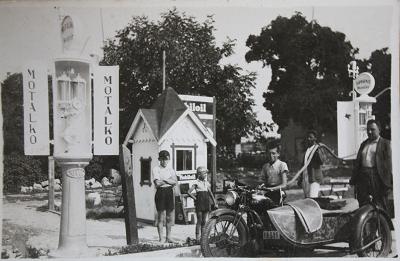 Motalko reconstructs the family history of Tasziló Landthaller, owner of the first private Hungarian petrol station. Founded by his father in 1936, the petrol station remained in Taszi’s hands through the most troubled times in recent Hungarian history – World War II, post-war nationalization, and the fall of the socialist regime in Hungary. The documentary reconstructs the struggles of a man who managed to hold on to a gas station and keep it open in an era when it was virtually impossible to run a private business, and who fought for 40 years until finally he officially won his petrol station back after the regime change. The proud owner is still working and motorists passing by on road no.7 can still fill up at his place, just like 76 years ago.
Motalko reconstructs the family history of Tasziló Landthaller, owner of the first private Hungarian petrol station. Founded by his father in 1936, the petrol station remained in Taszi’s hands through the most troubled times in recent Hungarian history – World War II, post-war nationalization, and the fall of the socialist regime in Hungary. The documentary reconstructs the struggles of a man who managed to hold on to a gas station and keep it open in an era when it was virtually impossible to run a private business, and who fought for 40 years until finally he officially won his petrol station back after the regime change. The proud owner is still working and motorists passing by on road no.7 can still fill up at his place, just like 76 years ago.
producer: Miklós Havas
editor: Attila Kékesi
camera: Rudolf Péter Kiss
sound: Miklós Havas
music: Ferenc Darvas
production info:
HB Production
Naphegy u. 38.
1016 Budapest, Hungary
habanamedia@gmail.com
tel: + 36 30 375 4486
selected filmography
A forradalom arca – Egy pesti lány nyomában (2006) / Béke poraikra (2004) / Vargabetű (2002) / A kor szelleme (1998) / Hajni (1994)
Attila Kékesi / Hungary / 2010 / 32 / Hungarian
The chronicle of a gas station and its persevering owner surviving WWII, the communist regime, and its fall in Hungary.

producer: Miklós Havas
editor: Attila Kékesi
camera: Rudolf Péter Kiss
sound: Miklós Havas
music: Ferenc Darvas
production info:
HB Production
Naphegy u. 38.
1016 Budapest, Hungary
habanamedia@gmail.com
tel: + 36 30 375 4486
selected filmography
A forradalom arca – Egy pesti lány nyomában (2006) / Béke poraikra (2004) / Vargabetű (2002) / A kor szelleme (1998) / Hajni (1994)
The Other Chelsea – A Story from Donetsk in International Panorama
Jakob Preuss/ Germany & Ukraine / 2010 / 87 min / Russian
A real billionaire has to own a soccer team. Shakhtar Donetsk is Ukrainian billionaire Rinat Akhmetov’s pet project. Big money and high hopes in Ukraine.
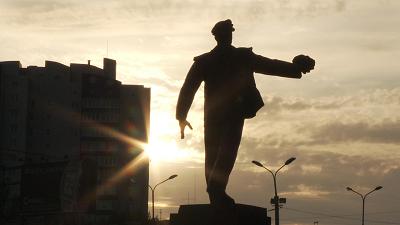
These days, a real billionaire has to own a football team. Russian oligarch Roman Abramovich bought the English club Chelsea, Georgian Merab Jordania bought the Dutch Vitesse; and Ukrainian billionaire Rinat Akhmetov pumped millions into his hobby, Shakhtar Donetsk. This documentary is about two of the team’s fans: coal miner Sasha sits among the common people in the terraces, while local politician Kolya is proud to share the VIP box with the Ukrainian political and business elite. The billionaire Akhmetov invests heavily in the club, which is becoming a major European force during the season followed by the film. Yet this sporting success funded by an oligarch’s fortune only seems to highlight the wider social and political stagnation of the region. While following the ups and downs of Shakhtar, the director looks beyond soccer to where politics, showbiz and economics meet.
producer: Stefan Kloos
editor: Markus CM Schmidt, Philipp Gromov, Lena Rem
camera: Eugen Schlegel, Pavel Kazantsev, Roman Yelensky, Maxim Kuphal-Potapenko, Philipp Gromov, Felix Korfmann
sound: Oleg Goloveshkin
music: Dominik Sprungala
production info:
Kloos & Co. Medien GmbH
Schlesische Str. 29/30
10997 Berlin
tel.: +49 (0) 30 4737 2980
info@kloosundco.de
www.kloosundco.de
www.theotherchelsea.com
filmography
The Unburied War – Srebrenica, a Decade On (2005) / Torn Iran – Young People’s Worlds in the Islamic Republic (2003)
Jakob Preuss/ Germany & Ukraine / 2010 / 87 min / Russian
A real billionaire has to own a soccer team. Shakhtar Donetsk is Ukrainian billionaire Rinat Akhmetov’s pet project. Big money and high hopes in Ukraine.

producer: Stefan Kloos
editor: Markus CM Schmidt, Philipp Gromov, Lena Rem
camera: Eugen Schlegel, Pavel Kazantsev, Roman Yelensky, Maxim Kuphal-Potapenko, Philipp Gromov, Felix Korfmann
sound: Oleg Goloveshkin
music: Dominik Sprungala
production info:
Kloos & Co. Medien GmbH
Schlesische Str. 29/30
10997 Berlin
tel.: +49 (0) 30 4737 2980
info@kloosundco.de
www.kloosundco.de
www.theotherchelsea.com
filmography
The Unburied War – Srebrenica, a Decade On (2005) / Torn Iran – Young People’s Worlds in the Islamic Republic (2003)
Our School in International Panorama
Mona Nicoara & Miruna Coca-Cozma / Switzerland & USA, / 2011 / 94 min / Romanian
Can EU money stop segregation of the Roma in school? 4 years in the life of a town in northern Romania: an in-depth look at generational prejudice, squandered opportunities, and good intentions gone awry. Sterling Award, Best US documentary, Silverdocs, Silver Spring, 2011
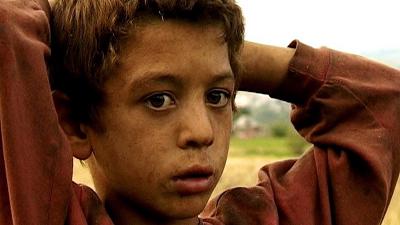
Our School follows three Roma children from a small Transylvanian town in Romania who are among the first participants in an initiative to integrate the ethnically segregated Romanian schools. In 2006, Alin, Benjamin, and Dana set out from their dead-end segregated school for the city, optimistic for education and new friendships with Romanians. The children’s hopes and innocent optimism quickly soured as they met with low expectations and further isolation. Shot over four years, this tender vérité portrait fosters an intimacy in the children's profound reality and admiration for their indomitable spirit, which is punctuated by shocking instances of prejudice and ignorance. Their story touches on issues ranging from institutionalized racism, public education, and the intractability of poverty, culminating in an outrageous finale that cements the Roma children's struggle in the annals of egregious human rights violations. Our School is an absorbing, infuriating, and ultimately bittersweet story of tradition and progress.
producer: Mona Nicoara, Miruna Coca-Cozma
editor: Erin Casper
camera: Ovidiu Marginean
sound: Miruna Coca-Cozma, Mona Nicoara
music: Sasha Gordon
production info:
Mona Nicoara
Sat Mic Film
124 First Place
Brooklyn NY
11231 U.S.A.
tel.: + 1 917 574 2329
mona.nicoara@gmail.com
Mona Nicoara & Miruna Coca-Cozma / Switzerland & USA, / 2011 / 94 min / Romanian
Can EU money stop segregation of the Roma in school? 4 years in the life of a town in northern Romania: an in-depth look at generational prejudice, squandered opportunities, and good intentions gone awry. Sterling Award, Best US documentary, Silverdocs, Silver Spring, 2011

producer: Mona Nicoara, Miruna Coca-Cozma
editor: Erin Casper
camera: Ovidiu Marginean
sound: Miruna Coca-Cozma, Mona Nicoara
music: Sasha Gordon
production info:
Mona Nicoara
Sat Mic Film
124 First Place
Brooklyn NY
11231 U.S.A.
tel.: + 1 917 574 2329
mona.nicoara@gmail.com
Out of Reach in International Panorama
Jakub Stożek / Poland / 2010 / 30 min / Polish
Two teenage girls abandoned by their mother fourteen years ago attempt to reestablish contact. Will they find each other?
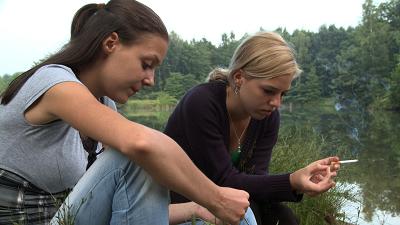
For most of their lives Klaudia and Karolina were raised without a mother. Growing up with a rough and self-centered father, the sisters had to learn to be more responsible and independent than other teenagers. The girls are impressively mature, they solve their own problems, support each other in all circumstances. When the younger sister’s health begins to deteriorate, they make another attempt to rebuild family relations that have been neglected by adults for years. Having established telephone contact with their mother, who was deprived of her parental rights, they learn that she has moved to France. Inspired by the hope to see their mother again, one of the girls decides to travel to Paris and meet the long-lost mother in person. The film accompanies Karolina, the older sister, as she sear¬ches for someone she hasn’t seen for 14 years and whose telephone always goes straight into voicemail. Will the daughter be able to establish a bond with the mother she has not seen for more than a decade?
producer: Bartkowicz- Koszalka Natalia
editor: Jakub Stożek
camera: Michał Sosna
sound: Mikołaj Kaczmarczyk
music: Zbigniew Kowalski
production info:
Darklight Film Studio
Natalia Bartkowicz-Koszałka
ul. Normandzka 38, 30-383 Kraków, Poland
tel.: + 50 1 622 810
natalia@darklight.pl
info@polishdocs.pl
filmography
No Collapse (2008) / Everything Will Be Fine (2006) / From a Distance (2006) / I Am (2005)
Jakub Stożek / Poland / 2010 / 30 min / Polish
Two teenage girls abandoned by their mother fourteen years ago attempt to reestablish contact. Will they find each other?

producer: Bartkowicz- Koszalka Natalia
editor: Jakub Stożek
camera: Michał Sosna
sound: Mikołaj Kaczmarczyk
music: Zbigniew Kowalski
production info:
Darklight Film Studio
Natalia Bartkowicz-Koszałka
ul. Normandzka 38, 30-383 Kraków, Poland
tel.: + 50 1 622 810
natalia@darklight.pl
info@polishdocs.pl
filmography
No Collapse (2008) / Everything Will Be Fine (2006) / From a Distance (2006) / I Am (2005)
Pablo’s Hippos in International Panorama
Antonio Von Hildebrand & Lawrence Elman / Colombia & UK/ 2010 / 81 min / English & Spanish
The rise and fall of Pablo Escobar, the most notorious of the Colombian drug lords – through the eyes of his pet hippopotamus. A satirical look at Colombia’s bloody and painful recent history.
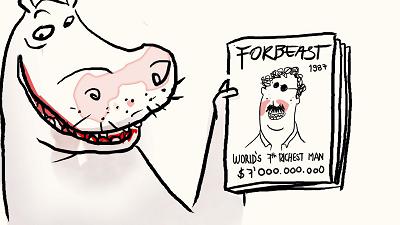
In the mid 1980's, Pablo Escobar was the world's most powerful drug dealer, and the third richest man in the world. He built a two–thousand-acre secure compound, deep in the Colombian jungle, complete with a lavish mansion and guest houses, stables, nightclub, a full-size concrete dinosaur park, and a private zoo housing hundreds of exotic animals, including two hippos that were settled into a man-made lake. Following his assassination in 1994, Escobar's assets were seized by the Colombian Government. 'Hacienda Napoles' was pillaged and destroyed: now only ruins remain and the animals have all disappeared. Except for the hippos. Far from starving to death, they have thrived and multiplied, making local fisherman fear for their lives and livelihoods. Pablo’s Hippos follows the 30-year career of the hippos -from their arrival from Africa through their gradual development into the new lords of the rivers - a parallel to Colombia’s own socio-economic adaptation and survival through 30 years of narco-trafficking and times of civil war and struggle. A story of unimaginable wealth, unabated sex, political intrigue, death, destruction, corruption, treachery and the ultimate legacy of a life dedicated to crime.
producer: Lawrence Elman, Antonio Von Hildebrand
editor: Francesco Bogino, Chris Peterson
camera: Mateo Londoño, Craig Kieff
sound: Andres Velasquez
music: José Villalobos, David Harrington, Ray Russell
production info:
Amber Entertainment/Drive Thru Pictures
Ileen Maisel, Lawrence Elman
21 Ganton Street, 4th Floor
London, United Kingdom
W1F 98N
tel.: +44 207 292 7170
info@amberentertainment.com
selected filmography
Freeman (2011) / Coca Inc. (2011)
Antonio Von Hildebrand & Lawrence Elman / Colombia & UK/ 2010 / 81 min / English & Spanish
The rise and fall of Pablo Escobar, the most notorious of the Colombian drug lords – through the eyes of his pet hippopotamus. A satirical look at Colombia’s bloody and painful recent history.

producer: Lawrence Elman, Antonio Von Hildebrand
editor: Francesco Bogino, Chris Peterson
camera: Mateo Londoño, Craig Kieff
sound: Andres Velasquez
music: José Villalobos, David Harrington, Ray Russell
production info:
Amber Entertainment/Drive Thru Pictures
Ileen Maisel, Lawrence Elman
21 Ganton Street, 4th Floor
London, United Kingdom
W1F 98N
tel.: +44 207 292 7170
info@amberentertainment.com
selected filmography
Freeman (2011) / Coca Inc. (2011)
Position among the Stars in International Panorama
Leonard Retel Helmrich / Indonesia & The Netherlands / 2010 / 111 min / Indonesian
A film about the sweeping changes in modern Indonesia, following three generations of a family from a Jakarta slum. Best Documentary at IDFA 2010
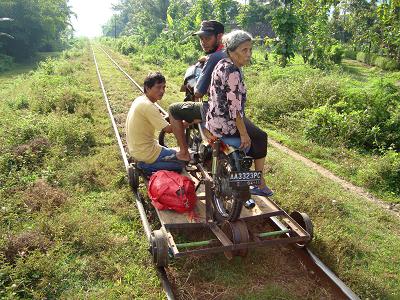
One family, three generations, facing globalization in Indonesia. At the start of the film, grandmother Rumidjah has left the bustle of Jakarta to live in the countryside. But when her adolescent, smart Tari granddaughter turns out to be too much for her son Bakti to handle, Bakti asks his mother to return to the city’s slums to provide the girl with a sense of values and purpose in life. Tari is growing up in a time of increasing openness. The people around her are allowed, and even expected, to express their opinion about everything. Indonesia is experiencing the growing pains of a Western-style generation gap, a new phenomenon in the Muslim country. The entire family sees in the intelligent Tari a chance to raise their status and escape the slums of Jakarta. Rumidjah is pressuring Tari to finish school with honors and be the first in their family to go to university. However Tari wants what all teenagers want – mobile phone, fun with friends while her family works themselves to the bone to pay her tuition fees. Using the microcosm of this family, which is presented in great detail, this documentary also reflects all the fundamental issues concerning life in contemporary Indonesia - corruption, conflict between religions, generation gaps and a growing divide between rich and poor.
producer: Hetty Naaijkens-Retel Helmrich
editor: Jasper Naaijkens
camera: Leonard Retel Helmrich, Ismail (Ezther) Fahmi Lubish
sound: Ismail (Ezther) Fahmi Lubish
music: Fahmy Al-Attas, Danang Faturahman
production info:
Hetty Naaijkens-Retel Helmrich
Scarabeefilms
Lloydstraat 5
Rotterdam
5052 WP Netherlands
tel: +31 13 530 0276
hetty@scarabeefilms.com
www.scarabeefilms.com
www.positionamongthestars.com
selected filmography:
Promised Paradise (2006) / Shape of the Moon (2005) / Flight from Heaven (2003) / The Eye of the Day (2002) / Jemand auf der Treppe (1994) / Moving Objects (1992)
Leonard Retel Helmrich / Indonesia & The Netherlands / 2010 / 111 min / Indonesian
A film about the sweeping changes in modern Indonesia, following three generations of a family from a Jakarta slum. Best Documentary at IDFA 2010

producer: Hetty Naaijkens-Retel Helmrich
editor: Jasper Naaijkens
camera: Leonard Retel Helmrich, Ismail (Ezther) Fahmi Lubish
sound: Ismail (Ezther) Fahmi Lubish
music: Fahmy Al-Attas, Danang Faturahman
production info:
Hetty Naaijkens-Retel Helmrich
Scarabeefilms
Lloydstraat 5
Rotterdam
5052 WP Netherlands
tel: +31 13 530 0276
hetty@scarabeefilms.com
www.scarabeefilms.com
www.positionamongthestars.com
selected filmography:
Promised Paradise (2006) / Shape of the Moon (2005) / Flight from Heaven (2003) / The Eye of the Day (2002) / Jemand auf der Treppe (1994) / Moving Objects (1992)
Regretters in International Panorama
Marcus Lindeen / Sweden / 2010 / 60 min / Swedish
Two men who went through sex-change operations, but later changed their minds, talk about their lives, gender, and regrets. Best Documentary, Prix Europa, Berlin, 2010
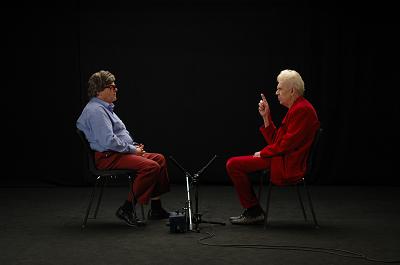
Orlando and Mikael, born as men, go under the knife in the hope of finding their true selves, only to realize that life on the other side isn’t what they dreamed of. Mikael underwent surgery in the mid-90s as a 50-year-old, while Orlando was one of the very first sex change patients in Sweden in 1967. Mikael now dresses as a man again and is trying to persuade his doctors to restore his original gender. The surgery done, he finds himself trapped inside a strange body that isn't his, and feels lost between genders. Orlando tells the story of his 11-year marriage to a man who presumed that he was a biological woman, until one afternoon his secret was revealed. Today, Orlando is an androgynous dandy, donning a single diamond earring. He enjoys living as both: sometimes man, sometimes woman. Now well into their 60s, the two meet for the first time to talk about their lives as well as the one defining regret they share, their sexual reassignment.
producer: Kristina Åberg
editor: Marinella Angusti, Kristin Grundström
camera: Erik Persson, Andréas Lennartsson
sound: Agnieszka Lewalski, Jens Johansson
music: Martin Willert
production info:
Kristina Åberg
Atmo Media Network
tel.: +46 8 462 26 90
kristina@atmo.se
www.atmo.se
Marcus Lindeen / Sweden / 2010 / 60 min / Swedish
Two men who went through sex-change operations, but later changed their minds, talk about their lives, gender, and regrets. Best Documentary, Prix Europa, Berlin, 2010

producer: Kristina Åberg
editor: Marinella Angusti, Kristin Grundström
camera: Erik Persson, Andréas Lennartsson
sound: Agnieszka Lewalski, Jens Johansson
music: Martin Willert
production info:
Kristina Åberg
Atmo Media Network
tel.: +46 8 462 26 90
kristina@atmo.se
www.atmo.se
René in Helena Třeštíková Retrospective
Helena Třeštíková / Czech Republic / 2008 / 83 min / Czech
In and out of prison for twenty years: an intimate portrait of a man on the margin of society.
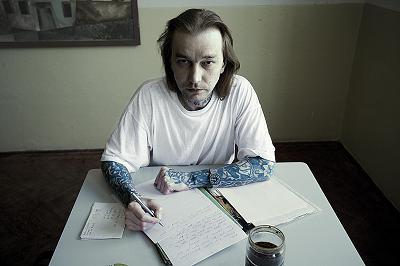
A petty offense as a teenager earned René a prison sentence, and set him off on a life of crime. Misanthropic, intelligent and introspective, he spends his life in and out of prison, struggling to fit in anywhere in the quickly changing Czech Republic. Filmmaker Helena Třeštíková began filming René in 1989, and kept up with him over the next two decades, even after he burgled her flat. Their collaboration, and his brief fame as a documentary star, spur him to write, and he becomes a published author. Yet the demons driving him remain. This engrossing film takes us on a journey of a life lived outside of society.
producer: Anna Beckova, Kateřina Černá, Pavel Strnad
editor: Jakub Hejna
camera: Martin Kubala, Petr Pešek, Stano Slušný, Václav Smolík, Marek Dvořák, Ondřej Belica, Miroslav Souček, Vlastimil Hamerník
sound: Vladimír Nahodil, Pavel Sádek, Jan Valouch, Václav Hejduk, Miroslav Šimčík, Štěpán Mamula, Daniel Němec, Zbyněk Mikulík, Petr Provazník, Jan Valouch
music: Tadeás Vercák
Helena Třeštíková / Czech Republic / 2008 / 83 min / Czech
In and out of prison for twenty years: an intimate portrait of a man on the margin of society.

producer: Anna Beckova, Kateřina Černá, Pavel Strnad
editor: Jakub Hejna
camera: Martin Kubala, Petr Pešek, Stano Slušný, Václav Smolík, Marek Dvořák, Ondřej Belica, Miroslav Souček, Vlastimil Hamerník
sound: Vladimír Nahodil, Pavel Sádek, Jan Valouch, Václav Hejduk, Miroslav Šimčík, Štěpán Mamula, Daniel Němec, Zbyněk Mikulík, Petr Provazník, Jan Valouch
music: Tadeás Vercák
The Siege in Evidence: Archival Footage in Documentary
Angus Gibson & Miguel Salazar / Colombia & France & USA / 2011 / 88 min / Spanish
34 guerillas, 11 Supreme Court Judges, and dozens of court employees – the death toll of the siege of the Palace of Justice in 1985 in Columbia. Who is to be held responsible?
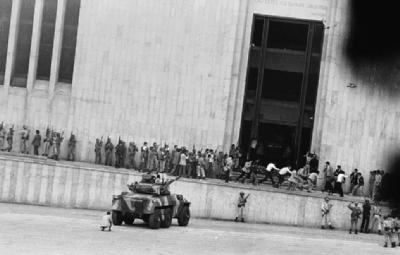
Bogotá, November 6, 1985. 35 heavily armed members of the M-19 guerilla movement storm the Palace of Justice, home to Colombia’s Supreme Court. Hundreds of people are taken hostage, including almost all of Colombia’s Supreme Court judges. The guerillas have a clear demand – they want the President put on trial. The government refuses to negotiate, and the military open fire on the building. For 27 hours, Bogotá’s central plaza is transformed into a brutal and bloody battlefield, resulting in nearly a hundred deaths, including 34 guerillas, along with eleven Supreme Court judges and many employees of the courts. Twelve others are unaccounted for. Many believe they were “disappeared”—removed from the building by government forces, tortured, and then killed. Twenty-five years later Colonel Plazas Vega, who commanded of the operation, is indicted for their disappearance. The case becomes a touchstone for the integrity of justice in Colombia.
producer: Bruni Burres, David Jammy, Maritza Blanco, Miguel Salazar
editor: Megan Gill
camera: Roberto Quintana, Miguel Salazar, Mauricio Vidal
sound: José Jairo Flórez
music: Camilo Sanabria
production info:
Pivot Pictures
International Center for Transitional Justice
5 Hanover Square, 24th floor
New York, NY 10004-2614
www.la-toma.info
selected filmography
Angus Gibson:
21 Up, South Africa: Mandela’s Children (2007) / Heartlines (2007) / Singing the Changes (1988)
Miguel Salazar:
Stolen Land (co-director) (2009) / The Battle of Science (2007) (co-director) / Hammer (2005)
Angus Gibson & Miguel Salazar / Colombia & France & USA / 2011 / 88 min / Spanish
34 guerillas, 11 Supreme Court Judges, and dozens of court employees – the death toll of the siege of the Palace of Justice in 1985 in Columbia. Who is to be held responsible?

producer: Bruni Burres, David Jammy, Maritza Blanco, Miguel Salazar
editor: Megan Gill
camera: Roberto Quintana, Miguel Salazar, Mauricio Vidal
sound: José Jairo Flórez
music: Camilo Sanabria
production info:
Pivot Pictures
International Center for Transitional Justice
5 Hanover Square, 24th floor
New York, NY 10004-2614
www.la-toma.info
selected filmography
Angus Gibson:
21 Up, South Africa: Mandela’s Children (2007) / Heartlines (2007) / Singing the Changes (1988)
Miguel Salazar:
Stolen Land (co-director) (2009) / The Battle of Science (2007) (co-director) / Hammer (2005)
Sons of Perdition in International Panorama
Tyler Measom & Jennilyn Merten / USA / 2010 / 87 min / English
How many mothers do you have? How many wives would you dream of? A behind-the-scenes look into Warren Jeffs’ polygamous community and the lives of those who decided to escape from it.
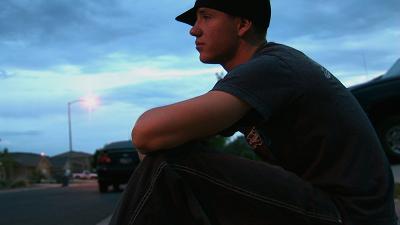
Remote Colorado City on the Utah-Arizona border is home to the "Crick," a Fundamentalist Latter-Day Saints (FLDS) community. This is the oldest polygamist compound in the United States; here men have several wives and raise their children by the strict code imposed and guarded by the FLDS’ prophet Warren Jeffs. In 2003, Jeffs began a systematic effort to cleanse his flock in preparation for the end of the world. He banned public schooling, gentile books, recreations, and excommunicated all his rivals and critics, marrying their women and children to other men. Hundreds of teenage boys escaped the community, giving up their families and salvation in the hope of an independent life. Sons of Perdition follows three boys after they leave the isolation of Colorado. With limited educations and rarely a stable address, they face enormous obstacles. All the boys have big dreams – starting with the hope of attending high school – yet they long desperately for contact with their families. With unprecedented access, directors Tyler Measom and Jennilyn Merten follow the teenagers for three years after their departure, creating powerful portraits of individualities struggling to be born despite the challenging traumas of the past. A timely, critical look at faith, family and religious exile in mainstream America.
producer: Julie Goldman, Tyler Measom, Jennilyn Merten
editor: Jenny Golden
camera: Tyler Measom
music: Mark Geary, Karl Odlum
production info:
Left Turn Films
205 E. Vidas Ave.
Salt Lake City, Utah 84115
tel.: +1 801 836 1578
tmeasom@leftturnfilms.com
jennilyn@leftturnfilms.com
Julie Goldman
tel.: +1 917 744 1355
julie@mottopictures.com
www.sonsofperditionthemovie.com
selected filmography
The Furniture (2004) / Fall of Man (2003)
Tyler Measom & Jennilyn Merten / USA / 2010 / 87 min / English
How many mothers do you have? How many wives would you dream of? A behind-the-scenes look into Warren Jeffs’ polygamous community and the lives of those who decided to escape from it.

producer: Julie Goldman, Tyler Measom, Jennilyn Merten
editor: Jenny Golden
camera: Tyler Measom
music: Mark Geary, Karl Odlum
production info:
Left Turn Films
205 E. Vidas Ave.
Salt Lake City, Utah 84115
tel.: +1 801 836 1578
tmeasom@leftturnfilms.com
jennilyn@leftturnfilms.com
Julie Goldman
tel.: +1 917 744 1355
julie@mottopictures.com
www.sonsofperditionthemovie.com
selected filmography
The Furniture (2004) / Fall of Man (2003)
The Specialist in Evidence: Archival Footage in Documentary
Eyal Sivan / Austria & Belgium & France & Germany & Israel / 1999 / 123 min / Hebrew & French & German
Edited from over 350 hours of archival footage, the film is a record of the 1961 trial of Adolf Eichmann, the man who coordinated the transport of Jews to the death camps. An insight into the bureaucracy that made the Holocaust possible.
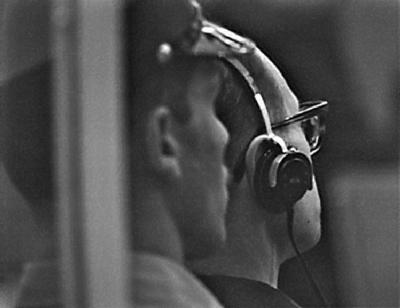
A German in the upper echelons of the Nazi party, Adolf Eichmann was in charge of the expulsion of Jews, Gypsies, and Slavic ethnic groups from the Reich between 1938 and 1941, and then of their deportation from Europe to the death camps. In 1960, he was captured by the Israeli Secret Service in Argentina. His subsequent trial in Jerusalem was one of the first filmed public trials. Eyal Sivan assembled excerpts of this footage to create a tightly edited and compelling documentary about a bureaucrat who fulfilled his duties during a time of war. Eichmann steadfastly insists that his part in the Holocaust was neither active or evil: he was only following orders. Inspired by Hannah Arendt's book Eichmann in Jerusalem, a Report on the Banality of Evil, the film offers profound insight into how the Holocaust was facilitated by bureaucracy and a subservient mindset that allowed people like Eichmann to claim ignorance and shuffle responsibility for atrocious crimes around like so many carbon-copy forms.
producer: Armelle Laborie, Eyal Sivan
editor: Audrey Maurion
camera: Leo Hurwitz
sound: Nicolas Becker, Philippe Baudhuin
music: Jean-Michel Levy, Nicolas Becker, Krishna Levy, Yves Robert, Béatrice Thiriet
production info:
Momento!
38, rue de la Chine 75020 Paris France
tel.: +33 (0)1 43 66 25 24
contact@momento-films.com
www.momento-films.com
Eyal Sivan
www.eyalsivan.net
filmography
Jaffa, The Orange's Clockwork (2009) / Citizens K. (2007) / Route 181: Fragments of a Journey in Palestine-Israel (2004) / I Love You All (2004) / The Specialist (1999) / Itsembatsemba: Rwanda One Genocide Later (1996) / Izkor: Slaves of Memory (1991) / Aqabat-Jaber, Passing Through (1987)
Eyal Sivan / Austria & Belgium & France & Germany & Israel / 1999 / 123 min / Hebrew & French & German
Edited from over 350 hours of archival footage, the film is a record of the 1961 trial of Adolf Eichmann, the man who coordinated the transport of Jews to the death camps. An insight into the bureaucracy that made the Holocaust possible.

producer: Armelle Laborie, Eyal Sivan
editor: Audrey Maurion
camera: Leo Hurwitz
sound: Nicolas Becker, Philippe Baudhuin
music: Jean-Michel Levy, Nicolas Becker, Krishna Levy, Yves Robert, Béatrice Thiriet
production info:
Momento!
38, rue de la Chine 75020 Paris France
tel.: +33 (0)1 43 66 25 24
contact@momento-films.com
www.momento-films.com
Eyal Sivan
www.eyalsivan.net
filmography
Jaffa, The Orange's Clockwork (2009) / Citizens K. (2007) / Route 181: Fragments of a Journey in Palestine-Israel (2004) / I Love You All (2004) / The Specialist (1999) / Itsembatsemba: Rwanda One Genocide Later (1996) / Izkor: Slaves of Memory (1991) / Aqabat-Jaber, Passing Through (1987)
Staging a Revolution in International Panorama
Mathew Charles & Albina Kovalyova / UK / 2010 / 27 min / Belarusian & English & Russian
The Belarusian Free Theatre is officially banned but continues to perform in secret locations. The troup has become a vehicle for political resistance in Europe’s last dictatorship, and it proves why the show must go on.
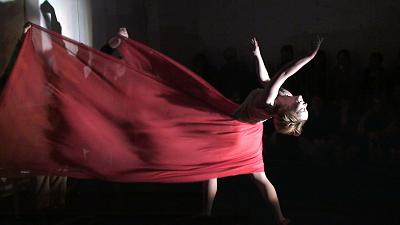
As the European Union's sanctions seal Belarus from the outside, Lukashenko's control of the media closes it from the inside. But an oddball band of thespians are determined to fight the censorship. Banned by the state, Free Theatre performs in secret locations and texts the venue to audiences. Every play could be their last. Husband and wife team Nikolai Khalezin and Natalya Kolyada have devoted their lives to the theatre. They give voice to the outsiders of Belarusian society: the gay, the disabled, the mentally ill, and they provide a vehicle for political resistance in Europe’s last dictatorship. Actors such as Jude Law and Sienna Miller have expressed their support for the members of the Free Theatre. The dramatist Tom Stoppard has provided financial support to the ensemble. Staging a Revolution provides an intimate look into this underground world; a world that, for their own safety, Nikolai and Natalya may ultimately be forced to leave behind.
producer: Mathew Charles
editor: Juan Luis Passarelli
camera: Mathew Charles, Albina Kovalyova
music: Lucy Mulgan, Sergei Shnurov
production info:
Mathew Charles Daffodil Media
25 Church Crescent, London
N10 3NA U.K.
tel: +44 773 791 2505
info@daffodilmedia.com
www.daffodilmedia.com
selected filmography
Mathew Charles: Beyond the Pink Curtain (2009)
Mathew Charles & Albina Kovalyova / UK / 2010 / 27 min / Belarusian & English & Russian
The Belarusian Free Theatre is officially banned but continues to perform in secret locations. The troup has become a vehicle for political resistance in Europe’s last dictatorship, and it proves why the show must go on.

producer: Mathew Charles
editor: Juan Luis Passarelli
camera: Mathew Charles, Albina Kovalyova
music: Lucy Mulgan, Sergei Shnurov
production info:
Mathew Charles Daffodil Media
25 Church Crescent, London
N10 3NA U.K.
tel: +44 773 791 2505
info@daffodilmedia.com
www.daffodilmedia.com
selected filmography
Mathew Charles: Beyond the Pink Curtain (2009)
The State of Weightlessness in Evidence: Archival Footage in Documentary
Maciej J. Drygas / Poland / 1994 / 57 minutes / Russian
Previously classified archival footage from the Soviet space program asks questions about life in space that official reports avoided.
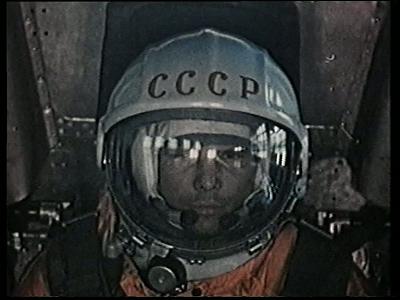 Previously classified archival footage chronicling the Soviet space program: questions about life in space that official reports did not address.
Previously classified archival footage chronicling the Soviet space program: questions about life in space that official reports did not address.
In the same year that we saw the first Russian-U.S. space mission go into orbit, symbolically marking the end of the Cold War's final frontier, filmmaker Drygas takes us behind the scenes of the Soviet/Russian space program. Combining interviews with Russian cosmonauts with never before seen archival footage of the early Soviet space program, The State of Weightlessness explores our place in the universe. Cosmonauts ranging from Herman Titov, who in 1961 became the second man in space, to Valeri Polakov, who spent 241 days in orbit in 1988, reveal facts that were previously suppressed about the life of astronauts before, during, and after missions. These men also divulge the equally carefully hidden dark side of the space program: the enormous fear of death as they left and returned to Earth, and the rigorous medical and psychological experiments that left many maimed for life.
producer: Maciej J. Drygas
editor: Dorota Wardęszkiewicz
camera: Andrzej Musiał, Stanisław Śliskowski
sound: Andrzej Zabicki
music: Paweł Szymański
production info:
Logos Film Studio
90-554 Łódź, ul. Łąkowa 29
logosfilm@wp.pl
filmography
One Day in People's Poland (2006) / Stan niewazkosci (1994) / Hear My Cry (1991) / Psychoterapia (1983)
Maciej J. Drygas / Poland / 1994 / 57 minutes / Russian
Previously classified archival footage from the Soviet space program asks questions about life in space that official reports avoided.

In the same year that we saw the first Russian-U.S. space mission go into orbit, symbolically marking the end of the Cold War's final frontier, filmmaker Drygas takes us behind the scenes of the Soviet/Russian space program. Combining interviews with Russian cosmonauts with never before seen archival footage of the early Soviet space program, The State of Weightlessness explores our place in the universe. Cosmonauts ranging from Herman Titov, who in 1961 became the second man in space, to Valeri Polakov, who spent 241 days in orbit in 1988, reveal facts that were previously suppressed about the life of astronauts before, during, and after missions. These men also divulge the equally carefully hidden dark side of the space program: the enormous fear of death as they left and returned to Earth, and the rigorous medical and psychological experiments that left many maimed for life.
producer: Maciej J. Drygas
editor: Dorota Wardęszkiewicz
camera: Andrzej Musiał, Stanisław Śliskowski
sound: Andrzej Zabicki
music: Paweł Szymański
production info:
Logos Film Studio
90-554 Łódź, ul. Łąkowa 29
logosfilm@wp.pl
filmography
One Day in People's Poland (2006) / Stan niewazkosci (1994) / Hear My Cry (1991) / Psychoterapia (1983)
There Was Once... in Hungarian Panorama
Gábor Kálmán / Hungary / 2011 / 103 min / Hungarian
Gyöngyi Magó, a teacher and a devoted researcher, uncovers the history of a once prosperous Jewish community and a forgotten chapter in the history of the town of Kalocsa.
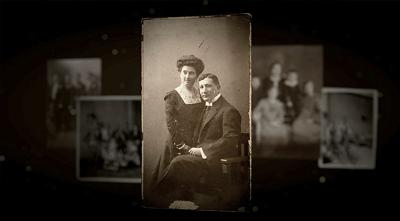 “I have been researching the history of the Jews of the town from the time they settled there in 1840, and I would like to follow the lives of their descendants up to the present day. I regard both education and research as important. In Hungary, unfortunately, radical views have intensified recently and I try to fight them with my own means. I wasn’t born a Jew but I am a human being and I truly believe that I am on the right track,” says Gyöngyi Magó. The film follows the efforts of a teacher to reveal a once prosperous Jewish community and a forgotten chapter in the history of the town of Kalocsa.
“I have been researching the history of the Jews of the town from the time they settled there in 1840, and I would like to follow the lives of their descendants up to the present day. I regard both education and research as important. In Hungary, unfortunately, radical views have intensified recently and I try to fight them with my own means. I wasn’t born a Jew but I am a human being and I truly believe that I am on the right track,” says Gyöngyi Magó. The film follows the efforts of a teacher to reveal a once prosperous Jewish community and a forgotten chapter in the history of the town of Kalocsa.
producer: Gábor Garami, Gábor Kálmán
editor: Kate Amend
camera: Zsolt Tóth, Jon Dunham
sound: Joe Milner
music: Mark So
production info:
Cinema-Film, Gabor Kalman Productions
Gyarmat u. 36.
1145 Bp., Hungary
garamai@cinemafilm.hu
tel.: + 36 1 252-0078
selected filmography
Tizenöt francia építész Los Angelesben (2000) / Fordulópontok (sorozat) (1998) / Pályaválasztás (1986)
Gábor Kálmán / Hungary / 2011 / 103 min / Hungarian
Gyöngyi Magó, a teacher and a devoted researcher, uncovers the history of a once prosperous Jewish community and a forgotten chapter in the history of the town of Kalocsa.

producer: Gábor Garami, Gábor Kálmán
editor: Kate Amend
camera: Zsolt Tóth, Jon Dunham
sound: Joe Milner
music: Mark So
production info:
Cinema-Film, Gabor Kalman Productions
Gyarmat u. 36.
1145 Bp., Hungary
garamai@cinemafilm.hu
tel.: + 36 1 252-0078
selected filmography
Tizenöt francia építész Los Angelesben (2000) / Fordulópontok (sorozat) (1998) / Pályaválasztás (1986)
Three in Windows to the Past: Balkan War Reflections
Goran Dević / Croatia / 2007 / 30 min / Bosnian & Croatian & Serbian
Three former soldiers from Croatia, Bosnia and Herzegovina, and Serbia remember the war. Even though they fought on different sides, they all agree on its tragic absurdity.
“Do we still need to keep talking about the war?" is the motto of this documentary by Goran Dević, who has decided to conduct confessional interviews with three men actively involved in the conflict in the former Yugoslavia. Serb Novica Kostić tried his best to avoid conscription but failed. During the war he was wounded and he now recalls how easily a person can be turned into a "killing machine." Rough-edged and slightly cynical Croat Narcis Misanović joined up voluntarily and was convicted after the war of the murder of 16 Serb civilians. Ivica Petrić saw his father and brother killed in front of his eyes. At the age of 11 he was already working in a military canteen and a few years later was fighting in the ranks of the Bosnian army. These interviews, recorded during car journeys, bring the fratricidal conflict home to the viewer. Even though the three fought on different sides, they all agree that the war was inhumane and absurd, and that today everybody behaves as if nothing happened.
producer: Nenad Puhovski
editor: Vanja Siruček
camera: Jure Černec, Tamara Cesarec
sound: Hrvoje Grill, Zlatan Čehić
Production info:
Factum Documentary Film Project
Nova Ves 18/3
10 000 Zagreb, Croatia
tel.: + 385 1 48 54 821
info@factumdocumentary.com
selected filmography
Don Juan: Excuse me, Miss! (2011) / Poplava (2010) / The Blacks (2009) / Ma sve ce biti u redu (2008) / Masturbation Among Croats (2003) / Vikend u Sisku (2001)
Goran Dević / Croatia / 2007 / 30 min / Bosnian & Croatian & Serbian
Three former soldiers from Croatia, Bosnia and Herzegovina, and Serbia remember the war. Even though they fought on different sides, they all agree on its tragic absurdity.
producer: Nenad Puhovski
editor: Vanja Siruček
camera: Jure Černec, Tamara Cesarec
sound: Hrvoje Grill, Zlatan Čehić
Production info:
Factum Documentary Film Project
Nova Ves 18/3
10 000 Zagreb, Croatia
tel.: + 385 1 48 54 821
info@factumdocumentary.com
selected filmography
Don Juan: Excuse me, Miss! (2011) / Poplava (2010) / The Blacks (2009) / Ma sve ce biti u redu (2008) / Masturbation Among Croats (2003) / Vikend u Sisku (2001)
Torn in International Panorama
Ronit Kertsner / Israel / 2010 / 72 min / English & Hebrew & Polish
Is it possible to be both a Catholic priest and an observant Jew? Romuald Waszkinel’s amazing journey from a Polish church to a religious kibbutz in Israel.
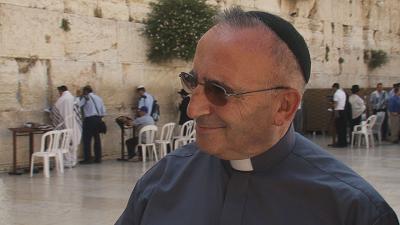
Can you be a Catholic priest and an observant Jew at the same time? 12 years after he was ordained as a Polish Catholic priest, Romuald Waszkinel discovers that he was born to Jewish parents, and that his name was Jacob Weksler. The film follows his amazing journey: from saying mass in a church in Poland to life as an observant Jew in a religious kibbutz in Israel. Romuald is torn between his two identities, between being Romuald Waszkinel and being Jacob Weksler. He is unable to renounce either, and is therefore rejected by both religions and by the state of Israel. Choosing one faith seems to be the only possible answer. But which one? And how?
producer: Ronit Kertsner
editor: Ronit Kertsner
camera: Ron Katzenelson, Shalom Rufeizen, Oded Kimchi
sound: Sharon Shama
music: Barak Hanoch
production info:
Go2Films Distribution & Marketing
37/8 Issar Natanzon St.
Jerusalem 97787 Israel
hedva@go2films.com
selected filmography
Menachem & Fred (2008) / I, The Aforementioned Infant (2006) / Haktana Hanal (2006) / The Secret (2002)
Ronit Kertsner / Israel / 2010 / 72 min / English & Hebrew & Polish
Is it possible to be both a Catholic priest and an observant Jew? Romuald Waszkinel’s amazing journey from a Polish church to a religious kibbutz in Israel.

producer: Ronit Kertsner
editor: Ronit Kertsner
camera: Ron Katzenelson, Shalom Rufeizen, Oded Kimchi
sound: Sharon Shama
music: Barak Hanoch
production info:
Go2Films Distribution & Marketing
37/8 Issar Natanzon St.
Jerusalem 97787 Israel
hedva@go2films.com
selected filmography
Menachem & Fred (2008) / I, The Aforementioned Infant (2006) / Haktana Hanal (2006) / The Secret (2002)
Videograms of the Revolution in Evidence: Archival Footage in Documentary
Harun Farocki & Andrei Ujica / Germany / 1992 / 106 min / English & Romanian
The Romanian revolution of 1989 and the fall of the Ceauşescu regime, as seen through official and amateur video recordings. The role of image and media in capturing and re-telling recent history.
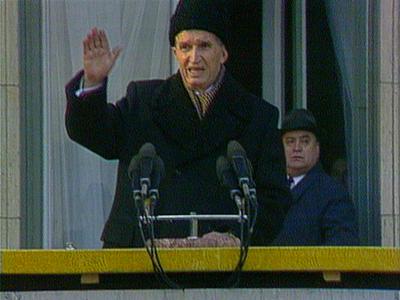
In the fall of 1989, history was being written across Eastern Europe, including Romania. Demonstrators in Bucharest occupied the television station and broadcast continuously for 120 hours, establishing the television studio as a new historical site. Between the day of Nicolae Ceausescu's last speech on December 21, 1989 and the first televised summary of his trial on December 26, 1989, both amateur and professional cameras recorded events at the most important locations in Bucharest. The filmmakers collected and edited the “videograms” to provide a rigorous chronology of the Romanian uprising and also to tell the story in a new media-based form of historiography. The film is built up of clips from amateur videos, official demonstration footage, and excerpts from a demonstrator-controlled Bucharest TV studio. An investigation into how the mediated image not only records but also embodies historic change.
producer: Harun Farocki
editor: Egon Bunne
music: Bobby Buchler
production info:
Harun Farocki Filmproduktion
harun.farocki@farocki-film.de
www.farocki-film.de
selective filmography
In Comparison (2009) / Respite (2007) / Nothing Ventured (2004) / War at a Distance (2003) / The Creators of the Shopping Worlds (2001) / Prison Images (2000) / Der Finanzchef (1998) / Worte und Spiele (1998) / The Interview (1997) / Still Life (1997) / Der Ausdruck der Hände (1997)
Harun Farocki & Andrei Ujica / Germany / 1992 / 106 min / English & Romanian
The Romanian revolution of 1989 and the fall of the Ceauşescu regime, as seen through official and amateur video recordings. The role of image and media in capturing and re-telling recent history.

producer: Harun Farocki
editor: Egon Bunne
music: Bobby Buchler
production info:
Harun Farocki Filmproduktion
harun.farocki@farocki-film.de
www.farocki-film.de
selective filmography
In Comparison (2009) / Respite (2007) / Nothing Ventured (2004) / War at a Distance (2003) / The Creators of the Shopping Worlds (2001) / Prison Images (2000) / Der Finanzchef (1998) / Worte und Spiele (1998) / The Interview (1997) / Still Life (1997) / Der Ausdruck der Hände (1997)
Vortex in Hungarian Panorama
Szekeres Csaba / Hungary / 2010 / 75 / Hungarian
Unemployment and despair in the Roma community of Told – the whirlpool of poverty and the feeble hopes of breaking out.
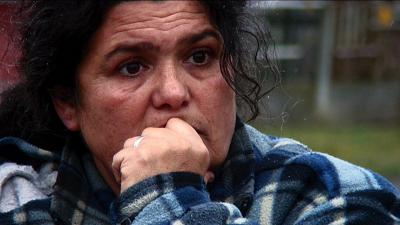 Vortex was filmed over a period of six months in the village of Told, on the border with Romania in the north-eastern part of Hungary. It captures the everyday lives of Roma families, their battle to make a living despite the harsh conditions exacerbated by unemployment, poverty, and discrimination. The film focuses on the experiences of three families, their fears of losing their children, and the ever-present challenges of finding enough food to eat and wood to heat their houses. One of Vortex’s protagonists is Juli, who is determined to leave the village at any price. Another family struggles to save their son suffering from cancer, yet another is concerned about their five-year-old who does not talk. Life in the whirlpool of poverty with very little hope of escape.
Vortex was filmed over a period of six months in the village of Told, on the border with Romania in the north-eastern part of Hungary. It captures the everyday lives of Roma families, their battle to make a living despite the harsh conditions exacerbated by unemployment, poverty, and discrimination. The film focuses on the experiences of three families, their fears of losing their children, and the ever-present challenges of finding enough food to eat and wood to heat their houses. One of Vortex’s protagonists is Juli, who is determined to leave the village at any price. Another family struggles to save their son suffering from cancer, yet another is concerned about their five-year-old who does not talk. Life in the whirlpool of poverty with very little hope of escape.
producer: Pál Sándor, John M. Oates
editor: Sándor Kiss
camera: Csaba Szekeres
sound: László Zalányi
music: Jan Volsy – Miniatures
production info:
Hunnia Filmstúdió Kft.
koprodukciós partner: The Open University (UK)
Róna u. 174.
1145 Budapest, Hungary
hunnia@hunniafilm.hu
tel: +36 1 221 1815
selected filmography
Nexus (2008) / Zozo (2006) / Ablak a múltra (2005) / Mami, blue – (2003) / Emberek – Homo provincialis (2002)
Szekeres Csaba / Hungary / 2010 / 75 / Hungarian
Unemployment and despair in the Roma community of Told – the whirlpool of poverty and the feeble hopes of breaking out.

producer: Pál Sándor, John M. Oates
editor: Sándor Kiss
camera: Csaba Szekeres
sound: László Zalányi
music: Jan Volsy – Miniatures
production info:
Hunnia Filmstúdió Kft.
koprodukciós partner: The Open University (UK)
Róna u. 174.
1145 Budapest, Hungary
hunnia@hunniafilm.hu
tel: +36 1 221 1815
selected filmography
Nexus (2008) / Zozo (2006) / Ablak a múltra (2005) / Mami, blue – (2003) / Emberek – Homo provincialis (2002)
Waste Land in International Panorama
Lucy Walker / Brazil & UK / 2010 / 98 min / English & Portuguese
Garbage into art, art into life: photographer Vik Muniz works together with locals at the world’s largest garbage dump in Rio de Janeiro. The power of art to transform and the alchemy of the human spirit. Audience Award, Sundance Film Festival, Berlinale, IDFA, 2010
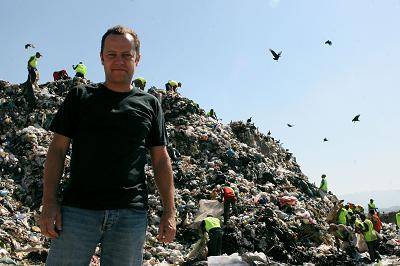
Filmed over nearly three years, Waste Land follows successful art photographer Vik Muniz as he journeys from his home base in Brooklyn to the world's largest garbage dump on the outskirts of Rio de Janeiro in his native Brazil. There he photographs an eclectic band of “catadores”—self-designated pickers of recyclable materials. Muniz’s initial objective was to “paint” the catadores with garbage. However, his collaboration with these inspiring characters as they recreate photographic images of themselves out of garbage reveals both the dignity and despair of the catadores as they begin to re-imagine their lives. What begins as a search for artistic inspiration quickly develops into a deeper level of social engagement - for the artist, for the filmmaker, and for the audience. Muniz manages something that modern art rarely does: he changes their lives. Just as the garbage is transformed into art, these human rejects gain a new sense of self-worth.
producer: Angus Aynsley, Hank Levine
editor: Pedro Kos
camera: Dudu Miranda
sound: Patrick O’Sullivan
music: Moby
production info:
Almega Projects
Angus Aynsley
tel.: +44 207 4797 410
info@almegaprojects.net
selected filmography
Countdown to Zero (2010) / Blindsight (2006) / Devil’s Playground (2002)
Lucy Walker / Brazil & UK / 2010 / 98 min / English & Portuguese
Garbage into art, art into life: photographer Vik Muniz works together with locals at the world’s largest garbage dump in Rio de Janeiro. The power of art to transform and the alchemy of the human spirit. Audience Award, Sundance Film Festival, Berlinale, IDFA, 2010

producer: Angus Aynsley, Hank Levine
editor: Pedro Kos
camera: Dudu Miranda
sound: Patrick O’Sullivan
music: Moby
production info:
Almega Projects
Angus Aynsley
tel.: +44 207 4797 410
info@almegaprojects.net
selected filmography
Countdown to Zero (2010) / Blindsight (2006) / Devil’s Playground (2002)
When China Met Africa in International Panorama
Marc Francis & Nick Francis / France & UK / 2010 / 75 min / English & Mandarin
On the front line of China’s growing presence in Africa, the lives of a Chinese farmer, a road builder, and the Zambian trade minister reveal the expanding footprint of a rising global power.
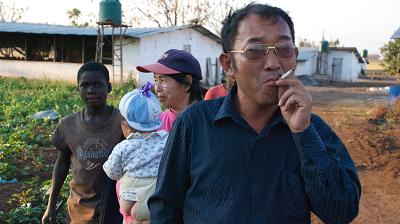
When China Met Africa observes three men who represent different aspects of the budding relationship between China and Zambia. The Chinese propensity for hard work impresses Zambia's Trade Minister Felix Mutati, who is resolved to to secure millions of dollars of investment into the Zambian economy by providing China with every opportunity it needs to mine and build. Mr Liu is one of thousands of Chinese entrepreneurs who have settled across the continent in search of new opportunities. He has just bought his fourth farm and business is booming. His attitude resembles that of a neo-colonialist landowner as he instructs his workers from behind a fence. Engineer Li Jianguo is a project manager in northern Zambia. He is a loyal servant of the Chinese state-owned company commissioned by the Zambian government to lay a road. The intimate portrayal of these characters reveals the expanding footprint of a rising global power - pointing to a radically different future, not just for Africa, but also for the world.
producer: Marc Francis, Nick Francis
editor: Hugh Williams
camera: Marc Francis
sound: Nick Francis
music: Florencia Di Concilio
production info:
Speak-it Media Studio 2U
Leroy House, 436 Essex Road
London N1 3QP, UK
tel.: +44 20 7226 0444
media@speak-it.org
www.speak-it.org
www.whenchinametafrica.com
filmography
Black Gold (2006)
Marc Francis & Nick Francis / France & UK / 2010 / 75 min / English & Mandarin
On the front line of China’s growing presence in Africa, the lives of a Chinese farmer, a road builder, and the Zambian trade minister reveal the expanding footprint of a rising global power.

producer: Marc Francis, Nick Francis
editor: Hugh Williams
camera: Marc Francis
sound: Nick Francis
music: Florencia Di Concilio
production info:
Speak-it Media Studio 2U
Leroy House, 436 Essex Road
London N1 3QP, UK
tel.: +44 20 7226 0444
media@speak-it.org
www.speak-it.org
www.whenchinametafrica.com
filmography
Black Gold (2006)
Wonderful Gladiators in Hungarian Panorama | Student Reviews
Zsófi Kabarcz / Hungary / 2011 / 52 min / Hungarian
A film about the Baltazar Theatre - a unique professional theatre company in Hungary whose members are mentally challenged actors and actresses.
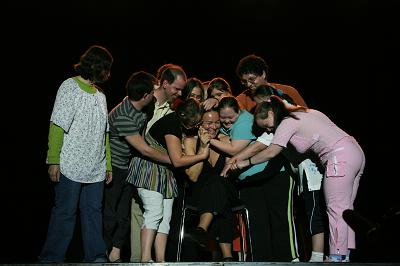 The Baltazar Theater is the only Hungarian professional acting group whose members are mentally challenged. The company was founded by Dóra Elek in 1998, inspired by the Belgian Théatre du Plantin. Though the actors are mentally disabled, their performance is measured by standard expectations rather than according to their abilities, so the stakes are high and the work is tough. The film follows the company during rehearsals for their new play 11 Commandments, revealing hard work, tensions and many interesting questions raised by the play itself. While disclosing a whole new dimension of theater and acting, Wonderful Gladiators also seeks to draw attention to the important role the Balthazar Theater plays in the social integration of the mentally challenged.
The Baltazar Theater is the only Hungarian professional acting group whose members are mentally challenged. The company was founded by Dóra Elek in 1998, inspired by the Belgian Théatre du Plantin. Though the actors are mentally disabled, their performance is measured by standard expectations rather than according to their abilities, so the stakes are high and the work is tough. The film follows the company during rehearsals for their new play 11 Commandments, revealing hard work, tensions and many interesting questions raised by the play itself. While disclosing a whole new dimension of theater and acting, Wonderful Gladiators also seeks to draw attention to the important role the Balthazar Theater plays in the social integration of the mentally challenged.
producer: Panna Boros, Marc B. Lorber
editor: Judit Feszt
camera: Gergő Somogyvári, Marcell Rév, Róbert Patócs, Gábor Tausz, Attila Tóth, Márton Vízkelety
sound: Béla Novák, Zoltán Vass, Ferenc Gerendai
music: Frenk & Szusza
production info
New Angle Team
Retek u. 32.
1024 Budapest, Hungary
panna@newangle.hu
tel.: + 36 30 396 6089
filmography
Birobidjan (Boros Pannával és Katz Dáviddal) (2008)
Zsófi Kabarcz / Hungary / 2011 / 52 min / Hungarian
A film about the Baltazar Theatre - a unique professional theatre company in Hungary whose members are mentally challenged actors and actresses.

producer: Panna Boros, Marc B. Lorber
editor: Judit Feszt
camera: Gergő Somogyvári, Marcell Rév, Róbert Patócs, Gábor Tausz, Attila Tóth, Márton Vízkelety
sound: Béla Novák, Zoltán Vass, Ferenc Gerendai
music: Frenk & Szusza
production info
New Angle Team
Retek u. 32.
1024 Budapest, Hungary
panna@newangle.hu
tel.: + 36 30 396 6089
filmography
Birobidjan (Boros Pannával és Katz Dáviddal) (2008)
You Don’t Like the Truth – 4 Days In Guantánamo in Evidence: Archival Footage in Documentary
Luc Côté & Patricio Henriquez / Canada / 2010 / 100 min / English
In 2002, fifteen-year-old Canadian Omar Khadr became the youngest prisoner at Guantánamo Bay. A security camera tells the gripping story of a child who was considered a war criminal. Special Jury Award, IDFA, 2010.
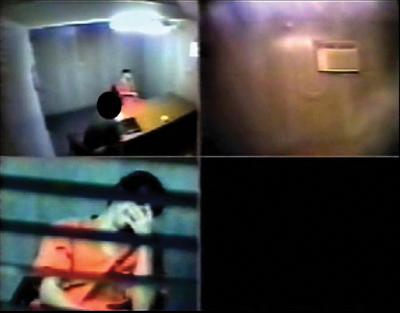
A poorly recorded video starts. Behind the table a young prisoner in chains and dressed in orange sits waiting. This is Canadian Omar Khadr who became - at 15 - the only child prisoner at a US maximum security facility in Guantánamo Bay, Cuba. In February 2003 Omar met investigators from the Canadian secret services during a four-day interrogation, mapped out in this documentary. The entire encounter was recorded. In May, 2008, the Canadian Supreme Court ordered the Canadian government to turn over to Omar Khadr's lawyers thousands of pages of documents related to the case, and so seven hours of videotape entered the public domain. With this unique document as the backbone of the documentary, the interrogation is examined by a panel of experts including a Toronto psychiatrist who specializes in treating torture victims , and the US military defense lawyer representing Omar Khadr. He is to be the first child soldier ever to be charged with war crimes.
producer: Luc Côté, Patricio Henriquez
editor: Andrea Henriquez
camera: Luc Côté, Patricio Henriquez
sound: Claude Langlois (sound editing)
production info:
Luc Côté, Les Films Adobe
70 St-Cyril, Montréal, Qc.
H2V 1H8
tel.: +1 514 576 1668
lucaslado@videotron.ca
www.youdontlikethetruth.com
selected filmography
Luc Côté:
Turning 32 (2010) / Operation Homecoming (2005) / Operation Retour (2005) / Cirque For Life (2004)
Patricio Henriquez :
Under the Hood: A Voyage into the World of Torture (2007) / Desobediencia (2005) / The Dark Side of the White Lady (2005) / Images of a Dictatorship (2004) / Juchitan, Queer Paradise (2002)
Luc Côté & Patricio Henriquez / Canada / 2010 / 100 min / English
In 2002, fifteen-year-old Canadian Omar Khadr became the youngest prisoner at Guantánamo Bay. A security camera tells the gripping story of a child who was considered a war criminal. Special Jury Award, IDFA, 2010.

producer: Luc Côté, Patricio Henriquez
editor: Andrea Henriquez
camera: Luc Côté, Patricio Henriquez
sound: Claude Langlois (sound editing)
production info:
Luc Côté, Les Films Adobe
70 St-Cyril, Montréal, Qc.
H2V 1H8
tel.: +1 514 576 1668
lucaslado@videotron.ca
www.youdontlikethetruth.com
selected filmography
Luc Côté:
Turning 32 (2010) / Operation Homecoming (2005) / Operation Retour (2005) / Cirque For Life (2004)
Patricio Henriquez :
Under the Hood: A Voyage into the World of Torture (2007) / Desobediencia (2005) / The Dark Side of the White Lady (2005) / Images of a Dictatorship (2004) / Juchitan, Queer Paradise (2002)